
Research Voyage
Research Tips and Infromation

What is the Difference Between a PhD Candidate and a PhD Student?
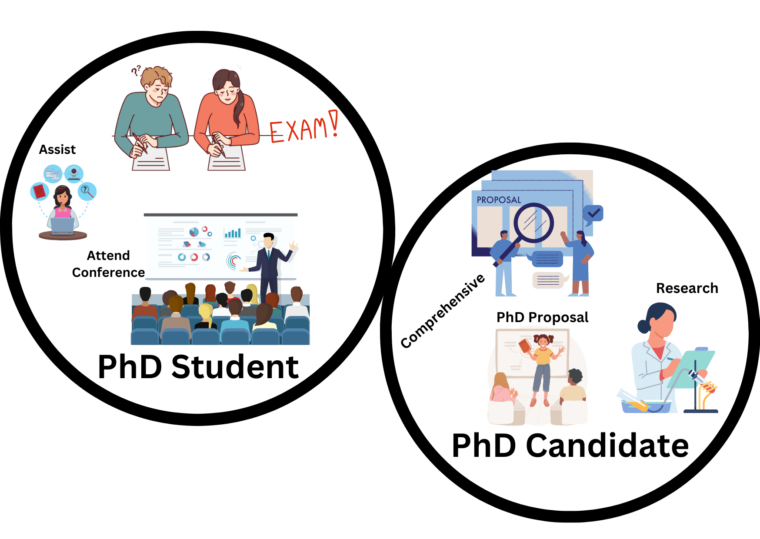
Pursuing a doctoral degree is a significant academic achievement that requires years of dedicated study, research, and intellectual rigour. Within the realm of doctoral studies, the terms ‘PhD candidate’ and ‘PhD student’ are commonly used, often interchangeably. However, a closer examination reveals that there are nuanced differences between these two designations. Understanding these distinctions is crucial for both prospective doctoral students and those seeking to comprehend the various stages of the doctoral journey.
In this article, we delve into the disparity between a PhD candidate and a PhD student, shedding light on the roles, responsibilities, and progression associated with each stage. We explore the specific criteria that differentiate a student from a candidate and the various milestones marking the transition. Additionally, we delve into the responsibilities and expectations that accompany each designation, illuminating the unique experiences and commitments faced by PhD candidates and students.
Furthermore, we acknowledge the variability in terminology across international boundaries, academic institutions, and disciplinary fields, providing insights into how different contexts might influence the usage of these terms. By the end, readers will have a comprehensive understanding of the contrasting aspects between a PhD candidate and a PhD student, facilitating informed conversations and a deeper appreciation for the intricate nature of doctoral education.
Introduction
Who is a phd student, when phd student attains status of phd candidate, variation in terminology.
Pursuing a PhD (Doctor of Philosophy) degree involves conducting original research in a specific field of study, making a significant contribution to knowledge, and demonstrating a high level of expertise. It is the highest academic qualification one can attain and is highly valued in academia, research institutions, and certain industries. A PhD signifies a deep understanding of a subject area, advanced analytical and critical thinking skills, and the ability to conduct independent research.
While the terms “PhD candidate” and “PhD student” are often used interchangeably, there are subtle differences between the two.
A PhD student typically refers to an individual who has been admitted to a doctoral program, actively engaging in coursework and other program requirements. They are in the early stages of their doctoral journey and are working towards completing the necessary academic components of their degree. On the other hand, a PhD candidate is typically someone who has progressed beyond the coursework stage and has advanced to the research phase of their program. They have usually completed comprehensive exams, passed a research proposal defense, and are actively engaged in independent research for their dissertation or thesis.
The purpose of this article is to provide a comprehensive understanding of the distinction between a PhD candidate and a PhD student. By exploring the criteria, milestones, and responsibilities associated with each designation, this article aims to clarify the unique experiences and progression of doctoral students. It also seeks to address the varying terminology used across different contexts and disciplines, enabling readers to grasp the intricacies of the doctoral journey and fostering informed discussions around this topic.
Through this article, readers will gain a comprehensive understanding of the journey from being a PhD student to becoming a PhD candidate and the distinct roles and responsibilities associated with each stage.
A PhD student is an individual who has been admitted to a doctoral program and is actively engaged in pursuing their doctoral studies. They are at the initial stages of their doctoral journey, seeking to expand their knowledge, skills, and expertise in a specific field of study. PhD students play a vital role in academic research communities as they contribute to the generation of new knowledge and the advancement of their discipline.
PhD students are required to complete a set of coursework specific to their field of study. These courses are designed to provide a foundation in the discipline, enhance research skills, and broaden the student’s understanding of relevant theories and methodologies. Coursework may include seminars, advanced classes, and specialized topics. The specific coursework requirements can vary between programs and disciplines.
Example: Imagine a student named Alex who has just been accepted into a doctoral program in psychology. At this stage, Alex is considered a PhD student as they begin taking relevant coursework, attending seminars, and collaborating with faculty members. They are laying the foundation for their research and acquiring the necessary knowledge in their field.
Who is a PhD Candidate?
Advancement from being a PhD student to a PhD candidate typically involves meeting specific requirements set by the doctoral program. These requirements may vary depending on the institution and field of study but often include successful completion of coursework, exams, and other program-specific milestones.
One of the primary requirements for transitioning to a PhD candidate is the successful completion of coursework and exams. PhD students are expected to complete a designated set of courses, which provide a broad understanding of their field and research methodologies. They are also required to pass comprehensive exams, which assess their comprehensive knowledge and understanding of their research area.
As part of the transition to becoming a PhD candidate, students typically prepare and defend a research proposal. The research proposal outlines the scope, objectives, methodology, and significance of the intended research. The proposal defense may involve presenting the proposal to a committee of faculty members, who evaluate its feasibility, rigour, and contribution to the field. Additionally, PhD students often have to pass comprehensive exams, which test their knowledge of their research area and related disciplines.
If you are not familiar with writing PhD proposal and making PhD proposal presentation, then visit my articles on “ How to Write PhD Proposal Presentation to the University ” and ” How to Make a PhD Proposal Presentation to the University Panel” . These articles will guide you through the process of preparation and presentation of PhD proposal to the University panel.
Upon successful completion of the requirements, PhD students are often granted candidacy status. Advancement to candidacy signifies that the student has demonstrated the necessary knowledge, skills, and potential to conduct independent research and contribute to their field. This status allows students to focus more exclusively on their research and dissertation work.
Once students become PhD candidates, there is a shift towards an increased emphasis on independent research. They are expected to dedicate a significant portion of their time and effort to conducting original research, collecting data, analyzing results, and making novel contributions to their field. The focus is primarily on their dissertation or thesis work, which serves as the culmination of their doctoral studies.
Example: Let’s consider a PhD student named Alex in the field of computer science. After completing their coursework and passing comprehensive exams, Alex develops a research proposal outlining their intention to investigate the applications of machine learning in cybersecurity. They present the proposal to a committee of faculty members, who assess the feasibility and potential impact of the research.
Alex successfully defends their research proposal and is granted candidacy status, transitioning from a PhD student to a PhD candidate. With candidacy status, Alex’s focus shifts towards conducting independent research. They spend considerable time collecting and analyzing cybersecurity datasets, developing and refining machine learning algorithms, and testing their effectiveness in detecting and preventing cyber threats.
As a PhD candidate, Alex works closely with their advisor, regularly discussing research progress, seeking guidance, and receiving feedback. They collaborate with other researchers in the field, attend conferences to present their findings and contribute to the scholarly community through publications. The focus is now on producing an original and significant contribution to the field of computer science through their dissertation.
The transition to PhD candidacy marks a critical stage in the doctoral journey, as it signifies the ability to independently drive research and make scholarly contributions. PhD candidates like Alex are immersed in the world of research, expanding knowledge, and pushing the boundaries of their field.
Terminology related to PhD candidates and PhD students can vary internationally and among different academic institutions. In some countries, the terms “PhD candidate” and “PhD student” may be used interchangeably, while in others, there may be specific distinctions. For example, in the United States, “PhD student” is commonly used, while in the United Kingdom, “PhD candidate” is more frequently employed. Additionally, different universities or institutions may have their own terminology preferences, which can create further variation.
Terminology can also vary based on the disciplinary field of study. Different academic disciplines have their own conventions and terminology for referring to individuals pursuing a doctoral degree. For instance, in the sciences, one might encounter terms like “graduate researcher” or “doctoral candidate.” In the humanities and social sciences, the terms “PhD candidate” and “PhD student” are often used. This variation reflects the specific linguistic and cultural norms within different academic domains.
In Canada, for instance, doctoral students are commonly referred to as “PhD candidates,” regardless of their stage in the program. In Australia, “PhD candidate” is the preferred term for those who have completed the required coursework and have advanced to the research phase. In contrast, in the United States, “PhD student” is frequently used to refer to individuals at all stages of their doctoral studies.
Disciplinary variations can also be observed. In engineering, individuals pursuing a doctoral degree are often referred to as “PhD students” or “doctoral students.” In contrast, in the field of education, the term “PhD candidate” is commonly used to denote those who have advanced to the research and dissertation stage.
It is important to note that these examples represent general trends, and there can still be variation within specific institutions and programs. The usage of terminology can evolve over time and may be influenced by regional or institutional preferences.
The distinction between a PhD candidate and a PhD student holds significant importance in the realm of doctoral education.
While these terms are often used interchangeably, they represent different stages and responsibilities within the doctoral journey. A PhD student is in the initial stages of their program, actively engaging in coursework, research, and academic requirements.
On the other hand, a PhD candidate has advanced beyond coursework, passed comprehensive exams, and is focused primarily on independent research and the completion of their dissertation.
Upcoming Events
- Visit the Upcoming International Conferences at Exotic Travel Destinations with Travel Plan
- Visit for Research Internships Worldwide

Recent Posts
- Best 5 Journals for Quick Review and High Impact in August 2024
- 05 Quick Review, High Impact, Best Research Journals for Submissions for July 2024
- Top Mistakes to Avoid When Writing a Research Paper
- Average Stipend for Research/Academic Internships
- These Institutes Offer Remote Research/Academic Internships
- All Blog Posts
- Research Career
- Research Conference
- Research Internship
- Research Journal
- Research Tools
- Uncategorized
- Research Conferences
- Research Journals
- Research Grants
- Internships
- Research Internships
- Email Templates
- Conferences
- Blog Partners
- Privacy Policy
Copyright © 2024 Research Voyage
Design by ThemesDNA.com


- Majors & Careers
- Online Grad School
- Preparing For Grad School
- Student Life
PhD Candidate vs Student: What’s the Difference?

Many people use the terms “PhD student” and “PhD candidate” interchangeably. However, these terms actually mean something quite different, including a different status level at universities.
We’re here to define the differences between a PhD candidate vs student, as well as other essential information, before you continue your educational journey.
Table of Contents
What I s a PhD student?
A doctoral student is anyone who is enrolled in a doctorate degree, also referred to as a Doctor of Philosophy (PhD) program. PhD students are typically required to complete a certain number of course credits and sit qualifying exams. Next, they can move on to conduct research and present it in the form of a dissertation.
A PhD is centered around self-directed research and possibly teaching/running tutorials, but they typically also involve a substantial amount of coursework and require attending classes, either online or in person.
Unlike candidates, PhD students are in the process of completing the required coursework for the degree. They haven’t passed the relevant qualifying exams yet.
What Is a PhD Candidate?
A PhD candidate has completed the required coursework and passed the qualifying exams for their doctorate program. They are currently working on their dissertation.
Most PhD students need to go through an application process and show they meet certain requirements such as a relevant master’s degree . To become a PhD candidate, doctoral students need to pass an internal application process, typically involving a set of exams.
This stage involves significant research usually in innovative areas and incorporating this into a dissertation (this stage is sometimes referred to as “all but dissertation” [ABD]), as they’ve completed all other aspects of the program and satisfied these requirements. To complete their doctoral journey, a PhD candidate must defend their dissertation. Once they’ve successfully done this, they will be awarded their degree and move from PhD candidate to doctor of their chosen field.
PhD Candidate vs Student: 6 Key Differences

There are a number of key differences between a PhD student vs PhD candidate, from their status to the structure and nature of study.
Note: Some universities have recently started adopting hybrid approaches (where there is no clear difference between PhD students and PhD candidates). These programs don’t involve any qualifying exams and students typically begin the dissertation as part of their coursework. Most schools, however, continue with the traditional distinction between a PhD candidate and PhD student.
1. Program Stage
A PhD student could be at any stage of the doctoral program . Coursework still needs to be completed and qualifying exams must be passed. Students may be in the initial stage of the program or about to complete the coursework (before beginning their research).
On the other hand, a PhD candidate has completed all coursework and has at least started their research. They may have completed their dissertation and are preparing to defend it.
2. Research Progress
A PhD student may not have selected their research topic or settled on a particular research question. A candidate’s research is in progress and they should already have a clear research question.
3. Relationship with Advisors
A PhD student may not yet have an advisor. A candidate has an established working relationship with their advisor and works closely with them to complete their research and dissertation.
4. Level of Support
Although they work closely with an advisor, a PhD candidate is generally expected to work more independently than a student enrolled in a doctoral student. Once candidates reach this stage of their doctorate, they typically won’t receive as much direction or supervision.
5. Flexibility and Structure
Understandably, PhD candidates have more freedom and flexibility in their work. Most candidates choose their area of research, as well as the methods used to conduct their work. As part of their coursework, PhD students usually have to work within a set structure (e.g., completing core subjects, meeting deadlines).
Being a PhD candidate comes with a certain degree of status. If they’ve demonstrated a degree of expertise through completing qualifying exams, candidates can put the letters PhD(c) after their name.
Tips for PhD Candidates

A PhD is an advanced degree designed to demonstrate expertise in a given field, as well as high-level skills and abilities in various areas (including research and writing). As such, earning a doctorate can be a challenging process.
The following tips for doctoral candidates will help you put your best foot forward and set yourself up for success.
Stay Organized
Because PhD candidates have to balance many competing priorities, organization is essential. Using organizational tools such as calendars, note-taking apps , and project management software can help you keep track of deadlines and meet your targets.
Focus on Your Research
PhD candidates likely have busy schedules with plenty of demands (such as teaching commitments and crafting a dissertation). As it’s the backbone of any doctoral program, be sure to prioritize this part of your work and monitor progress to stay on track.
Actively Seek Out Feedback
Because PhD candidates often work independently, there’s a risk of feeling isolated. Ask your advisors, mentors, and fellow candidates for feedback and advice. This will help ensure that you’re considering all aspects of your research question and multiple solutions, rather than focusing too intensely on a single area.
Take Advantage of Networking Opportunities
Networking is one of the biggest benefits for PhD candidates, so take full advantage of these events. Use this time to build a strong network of professors, advisors, fellow candidates, and other professionals you meet at conferences and events.
Take Care of Yourself
A PhD program can be taxing, and it’s easy for your mental and physical health to take a backseat. Make sure you exercise, eat well, and get enough sleep . Remember: Resting and recharging is crucial for working on your dissertation.
How Long Is a Typical PhD Candidacy?
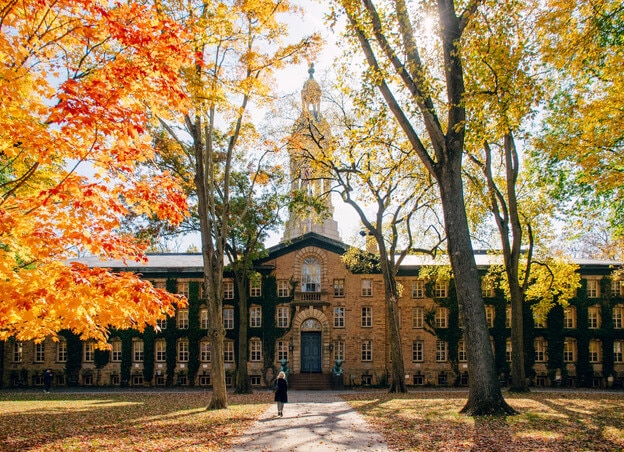
Most PhD students require 1-2 years to complete their coursework and pass their qualifying exams. However, the length of a PhD candidacy is much more open. In most cases, programs take between two and five years, depending on:
- the complexity of the field of research
- the candidate’s other commitments, such as teaching load
- other abilities, such as a candidate’s level of organization.
Once a PhD candidate has completed their dissertation, they have to defend it successfully before a panel of faculty members before they can earn their doctorate degree. This process of defending a PhD dissertation can take several months.
Some universities specify a maximum length for PhD candidacy duration. For example, Carnegie Mellon University limits this to six years .
Benefits of Being a PhD Candidate
Being a PhD candidate can be rewarding for several reasons:
1. Research Opportunities
You’ll be exposed to vast research opportunities in your field. You may contribute to valuable discoveries while developing advanced knowledge and skills.
2. Networking
Through your PhD candidacy, you’ll also be in a great position to build gain a stronger network of fellow professionals.
3. Critical Thinking
A PhD candidacy can help you develop high intellectual independence and critical thinking skills.
4. Career Opportunitie s
A PhD is an advanced degree that allows you to build a rewarding career in the academic, government, and private sectors. PhD-holders can also expect to earn more than other graduates and are most likely to find a job.
5. Salaries
According to Northeastern University , professionals with a doctorate degree earn an average annual salary of $99,290 on average (and much more for the highest-paid PhDs ) and have a 1.5% unemployment rate. For master’s degree holders, the average annual salary is $81,867 average annual salary and a 2.6% unemployment rate.
6. Personal Fulfillment
Being a PhD candidate can help you pursue your passions. This advanced qualification will allow you to become a specialist in your chosen field, allowing you to hone in on the exact subject thatl fulfills you the most.
Qualifying Exams to Become a PhD Candidate

While requirements vary by program, to become a PhD candidate, most students will need to pass a set of exams. These will test students’ knowledge in the field, measure their research skills, and ensure they’re ready to start their dissertation research.
Traditionally, qualifying exams for PhD candidates involved a written test and an oral exam. These will cover a range of topics related to your field of study, with the oral component designed to demonstrate your level of understanding.
Some universities have recently started to issue doctoral students with a set of questions and have them submit the answers within a set timeframe (usually around two weeks). Other schools ask prospective doctoral candidates to submit a dissertation proposal instead of an exam.
Frequently Asked Questions
Can a phd candidate be called a doctor.
In most cases, a doctoral candidate cannot be called a doctor until after they successfully defend their dissertation and receive their doctorate.
Can I Put ‘PhD Candidate’ after My Name?
Once you’ve passed qualifying exams and embarked on dissertation research, you’re technically entitled to put “PhD candidate” or “PhD (c)” after your name. However, this is uncommon and not always recommended. It is generally more acceptable to mention that you are pursuing a doctorate (along with the field of research and university) or that you expect to complete your PhD in a certain year (on your CV and online profiles).
How Long Can You Be a PhD Candidate?
There isn’t a set length of time that a person can be a PhD candidate. The length of candidacy depends on a range of factors, including the subject of research and program requirements. Most PhD candidates complete this phase in around 3-5 years (where some university programs have set limits).
Do PhD Students Take Classes?
Yes, most PhD students must take classes and complete coursework as part of the first 1-2 years of their doctorate program. Once they’ve completed this coursework and passed qualifying exams, they move on to work on their research dissertation. At this stage, they’ll be considered a PhD candidate.
Key Takeaways
Now that you know the differences between PhD candidates vs. students, you’ve got a deeper understanding of how to obtain a doctorate. However you slice it, both will help you build your knowledge and skills to become an expert in your field.
However the program is structured, a PhD is a highly valuable degree that allows you to become a high-level professional and build a successful career.
If you know a PhD candidate who’s celebrating their accomplishments soon? Take a look at this guide to the best PhD graduation gifts .
- 10 Best PhD Programs in Pennsylvania
- Top 10 Best PhD in Cybersecurity Online Programs
- 10 Top PhD Programs in Chemistry
- The Top 10 Easiest PhDs: Tuition, Duration, and Financial Aid
- Top 10 Fully Funded PhD Programs and Universities
- Top 10 Best PhD in Medicine Programs

Lisa Marlin
Lisa is a full-time writer specializing in career advice, further education, and personal development. She works from all over the world, and when not writing you'll find her hiking, practicing yoga, or enjoying a glass of Malbec.
- Lisa Marlin https://blog.thegradcafe.com/author/lisa-marlin/ 30+ Best Dorm Room Essentials for Guys in 2024
- Lisa Marlin https://blog.thegradcafe.com/author/lisa-marlin/ 12 Best Laptops for Computer Science Students
- Lisa Marlin https://blog.thegradcafe.com/author/lisa-marlin/ ACBSP Vs AACSB: Which Business Program Accreditations is Better?
- Lisa Marlin https://blog.thegradcafe.com/author/lisa-marlin/ BA vs BS: What You Need to Know [2024 Guide]
14 Cheap Spring Break Destinations for College Students in 2024
How to get a master’s without a bachelor’s: the complete guide, related posts.
![is a doctoral researcher a phd student When to Apply for Grad School: The Simple Guide [2026/2027]](https://blog.thegradcafe.com/wp-content/uploads/2021/08/When-to-Apply-to-Grad-School-350x250.png)
- When to Apply for Grad School: Easy Monthly Timeline [2026-2027]

- 30+ Best Dorm Room Essentials for Guys in 2024

- Best Laptop for Programming Students in 2024

- The Sassy Digital Assistant Revolutionizing Student Budgeting

Computer Science Graduate Admission Trends: Annual Results

The Best Academic Planners for 2024/2025

Leave a Reply Cancel reply
Your email address will not be published. Required fields are marked *
Save my name, email, and website in this browser for the next time I comment.
Recent Posts
- How New Grads Research Companies to Find Jobs

© 2024 TheGradCafe.com All rights reserved
- Partner With Us
- Results Search
- Submit Your Results
- Write For Us
Doctorate vs. PhD: Understanding the Key Differences [2024]
If you’re interested in pursuing a doctoral degree, you may wonder about the differences between a doctorate vs. PhD.

A doctorate and a PhD are both terminal degrees that allow you to develop specialized knowledge and skills in your chosen field. But these degrees typically have different areas of focus, requirements, and career outcomes.
Editorial Listing ShortCode:
Understanding the difference between PhD and doctorate can help you pick the degree that most aligns with your career aspirations and interests.
What’s the Difference Between Doctorate vs. PhD Degrees?

A doctorate and a Ph.D. are the highest college degrees students can earn. Graduates of both types of programs receive the title of “doctor” and may qualify for specialized careers in their fields.
But, while doctorate programs focus on professional competencies and knowledge, PhD programs prioritize academic research.
What Is a Doctorate Degree?

A doctorate degree is a professional degree that enables students to become experts in a specific field or industry. This degree focuses on applying academic research and theories in the workplace to improve performance and solve problems.
Courses vary by field and program but typically emphasize professional skills like collaboration, leadership, and project management. Additionally, many doctorate programs require students to complete a capstone project that addresses real issues affecting their industry.
Graduates often qualify for advanced administrative, leadership, and managerial positions in their fields.
What Is a PhD Degree?

A Doctor of Philosophy (PhD) degree is an opportunity to strengthen your academic research skills and generate original knowledge. This degree trains students to become independent scholars who conduct cutting-edge research in their areas of expertise.
PhD curriculums cover advanced concepts and theories in a discipline. They also teach students qualitative and quantitative methodologies to design studies and conduct research. Additionally, most PhD programs require students to produce a dissertation that contributes fresh knowledge to the field.
Current professionals with PhDs often work as academic researchers and professors. They may also secure government and industry jobs.
Key Differences Between a PhD vs. Doctorate Degree
What’s a PhD degree ? What’s a doctorate degree? The main difference between a doctorate and a PhD is their area of focus. A doctorate prioritizes applied knowledge and professional skills, while a PhD emphasizes academic research. Let’s compare some more differences between a professional doctoral degree vs. PhD.

A doctorate enables students to become expert practitioners in their discipline. Students study existing concepts and theories and learn how to apply these ideas in the workplace.
By contrast, a PhD prepares students to conduct innovative research and educate others.
Goals and Outcomes

Doctorate programs help prepare students for senior administrative and leadership positions in their industries. They also help students enhance their professional competencies and tackle industry-specific challenges.
Students who pursue PhDs aim to advance their disciplines by generating new knowledge. They may also publish peer-reviewed research and teach undergraduate courses.
Student Population

Doctorate degrees are designed for current or aspiring working professionals who want to become industry leaders. These programs also enable students to increase their knowledge and credibility.
PhD programs attract students who want to expand their knowledge of research methodologies and theories. These learners also frequently pursue academic careers.
Admissions Requirements

Doctorate and PhD programs typically require students to have bachelor’s and master’s degrees.
Additionally, prospective doctorate students may be asked to provide evidence of work experience, while PhD students might demonstrate their research abilities with a writing sample.
Program Length

Requirements vary by program, but full-time students typically complete a doctorate in 3 to 5 years. Programs that require a capstone project may take longer. For those considering quick degrees, a number of universities now offer accelerated doctoral programs online .
PhD programs often take 4 to 7 years to finish. The speed at which students research and write their dissertations can significantly impact the timeline.

The curriculum for doctorate programs typically centers on practical skills and contemporary issues in the field. Topics may include communication, ethics, and leadership.
PhD programs offer classes on research methods, theories, and disciplinary trends. Students also learn how to write journal articles and present at conferences.
Assessment and Completion Requirements

Doctorate and PhD students both complete 2 or more years of coursework. They also demonstrate their knowledge during comprehensive exams.
Doctorate students may produce a capstone project that applies their knowledge to real problems. By contrast, PhD students write dissertations based on original research.
If You Have a PhD, Are You a Doctor?

Is a PhD a doctor ? While graduates who earn a PhD are referred to as doctors, a PhD is different from a Doctor of Medicine (MD).
Doctors with MDs are medical doctors who can legally prescribe medications, perform surgery, and treat patients. They typically apply existing medical knowledge instead of conducting research. Doctors with PhDs don’t have any of these abilities. Instead, they have specialized knowledge and perform academic research in a particular field.
PhD or Doctorate Degree – Which Is Right for You?

Understanding the difference between a doctorate and a PhD can help you select the right degree for you.
Professional doctorate degrees help students become leading practitioners and problem solvers. By contrast, PhD degrees enable students to hone their research skills and learn advanced concepts. Both degrees allow you to enrich your understanding of your chosen discipline or profession. They also help you boost your credentials and develop new skills.
After you decide between a doctorate degree vs. PhD, you can explore program options from accredited schools to find the best fit.


What is a PhD?
- Types of Doctorates
- A Doctor of Philosophy (PhD) is the highest globally recognized postgraduate degree that higher education institutions can award.
- PhDs are awarded to candidates who undertake original and extensive research in a particular field of study.
- Full time PhD programmes typically last three to four years, whilst part time PhD programmes typically last six to seven years.
- A PhD can lead to an academia teaching role or a career in research. A PhD can also equip you with skills suitable for a wide range of jobs unrelated to your research topic or academia.
Definition of a PhD – A Doctor of Philosophy (commonly abbreviated to PhD , Ph.D or a DPhil ) is a university research degree awarded from across a broad range of academic disciplines; in most countries, it is a terminal degree, i.e. the highest academic degree possible.
PhDs differ from undergraduate and master’s degrees in that PhDs are entirely research-based rather than involving taught modules (although doctoral training centres (DTCs) offer programmes that start with a year of lecture-based teaching to help develop your research skills prior to starting your project).
In most English-speaking countries, those that complete a PhD use the title “Doctor” (typically abbreviated to Dr) in front of their names and are referred to as such within academic and/or research settings. Those that work in fields outside of academia may decide not to use the formal doctor title but use post-nominal letters (e.g. John Smith PhD); it’s unusual though for someone to use both the Doctor title and post-nominal letters in their name.
PhD vs Doctorate
A PhD and a professional doctorate are both research-based terminal degrees.
However, where a PhD focuses on original research mostly around theoretical concepts, a professional doctorate focuses on examining existing knowledge to solve real-life, practical problems.
While there is much crossover between the two, a PhD is generally better suited for an individual to wants to advance the knowledge and understanding in their field, and a professional doctorate degree is better suited to a working professional who wants to better be able to apply knowledge and understanding to their field.
What Are the Entry Requirements for a PhD?
To be accepted on to a PhD programme, students usually need to hold at least a high ( 2:1 and above ) undergraduate degree that is related to the field of research that they want to pursue. A PhD candidate may also be expected to hold a Master’s degree , however, this does not mean you must have one, as it is still possible to enrol into a PhD without a Master’s .
Self-funded courses may sometimes be more relaxed in relation to entry requirements . It may be possible to be accepted onto a self-funded PhD programme with lower grades, though these students typically demonstrate their suitability for the role through professional work experience.
Whilst a distance learning project is possible , most PhD candidates will carry out their research over at least three years based at their university, with regular contact with two academic supervisors (primary and secondary). This is particularly the case for lab-based projects, however, some PhD projects require spending time on-site away from university (e.g. at a specialist research lab or at a collaborating institution abroad).
How Long Does a PhD Take?
Typically, full-time PhDs last 3-4 years and part-time PhDs last 6-7 years. However, at the discretion of the university, the thesis writing-up period can be extended by up to four years.
Although most doctoral programmes start in September or October, they are generally much more flexible than taught-courses and can start at any time of the year.
How Much Does a PhD Cost?
Tuition fees for UK and EU students vary between £3,000 and £6,000 per year, with the average tuition fee of £4,712 per year for 2023/24 programmes.
Tuition fees increase considerably for international students, varying between £16,000 to £25,000 per year, with an average tuition fee of £19,600 per year .
Nonetheless, most students will secure PhD funding in the form of studentships, scholarships and bursaries to help pay for these fees. These funding opportunities can either be partial, which cover tuition fees only, or full, which cover both tuition fees and living expenses.
UK national students can also apply for Doctoral Loans from Student Finance England if they are unable to secure funding.
Finding a PhD has never been this easy – search for a PhD by keyword, location or academic area of interest.
What Does a PhD Involve?
To be awarded a PhD, a doctoral student is required to produce a substantial body of work that adds new knowledge to their chosen field.
A PhD programme will typically involve four key stages:
Stage 1: Literature Review
The first year of a PhD involves attending regular meetings with your supervisors and carrying out a search on previously published work in your subject area. This search will be used to produce a literature review which should set the context of the project by explaining the foundation of what is currently known within the field of research, what recent developments have occurred, and where the gaps in knowledge are. In most cases, this will be an extension of your research proposal should you have produced one as part of your application. The literature review should conclude by outlining the overarching aims and objectives of the research project. This stage of setting achievable goals which are original and contribute to the field of research is an essential first step in a successful PhD.
The supervisor is the main point of contact through the duration of a PhD – but remember: they are there to mentor, not to teach, or do it for you . It will be your responsibility to plan, execute and monitor your own work as well as to identify gaps in your own knowledge and address them.
Stage 2: Research
The second year (and prehapse some of your third year) is when you work on your research. Having identified novel research questions from your review of the literature, this is where you collect your data to help answer these questions. How you do this will depend on the nature of your doctoral research: for example, you may design and run experiments in a lab alongside other PhD students or visit excavation sites in remote regions of the world. You should check in regularly with your supervisors to update them and run any ideas or issues past them.
Have the structure and chapters of your thesis in mind as you develop and tackle your research questions. Working with a view of publishing your work will be very valuable later on.
Stage 3: Write up of Thesis
The next key stage of a PhD is writing a doctoral thesis , which typically takes from anywhere between three months to one year. A thesis is a substantial body of work that describes the work and outcomes of the research over the previous two to three years. It should tell a detailed story of the PhD project – focusing on:
- The motivations for the research questions identified from the literature review.
- The methodologies used, results obtained, and a comprehensive analysis and discussion of the findings.
- A detailed discussion of the key findings with an emphasis on the original contributions made to your field of research and how this has been impactful.
There is no universal rule for the length of a PhD thesis, but general guidelines set the word count between 80,000 to 100,000 words.
For your thesis to be successful, it needs to adequately defend your argument and provide a unique or increased insight into your field that was not previously available.
Stage 4: Attending the Viva
A viva voce , most commonly referred to as just a ‘ viva ‘, is an interview-style examination where the PhD student is required to engage in a critical appraisal of their work and defend their thesis against at least two examiners. The examiners will ask questions to check the PhD student has an in-depth understanding of the ideas and theories proposed in their thesis, and whether they have developed the research skills that would be expected of them.
The viva is one of the final steps in achieving a PhD, and typically lasts at least two hours, but this duration can vary depending on the examiners, the university and the PhD project itself.
Once you have done the viva – you’re on the home stretch. You will typically be asked to make some amendments to your thesis based on the examiner’s feedback. You are then ready to submit your final thesis for either:
- PhD – If you pass the requirements you will be awarded a PhD degree (most common outcome),
- MPhil – If you failed to meet requirements for a PhD, you may be downgraded to an MPhil degree (uncommon outcome),
- Fail – No award is given, typically for cases of plagiarism (extremely uncommon outcome).
What Is It Like to Undertake a PhD?
We’re often asked what it is like to undertake a PhD study. Unfortunately, this isn’t a simple answer to this question as every research project is different.
To help give insight into the life of a PhD student, we’ve interviewed PhD students at various stages of their programmes and put together a series of PhD Student Interviews . Check out the link to find out what a PhD is like and what advice they have to offer you.
What Are the Benefits of A PhD?
A PhD is the highest globally recognised postgraduate degree that higher education institutions can award. The degree, which is awarded to candidates who demonstrate original and independent research in a particular field of study, is not only invaluable in itself, but sets you up with invaluable skills and traits.
Career Opportunities
First, a PhD prepares you for a career in academia if you wish to continue in this area. This takes form as a career in the Higher Education sector, typically as a lecturer working their way to becoming a professor leading research on the subject you’ve studied and trained in.
Second, a PhD also enables the opportunity for landing a job in a research & development role outside of the academic environment. Examples of this include laboratory work for a private or third sector company, a governmental role and research for commercial and industrial applications.
Transferable Skills
Finally, in possessing a PhD degree, you can show to employers that you have vital skills that make you an asset to any company. Three examples of the transferable skills that you gain through a PhD are effective communication, time management, and report writing.
- Communication – presenting your work in written and oral forms using journal papers and podium presentations, shows your ability to share complex ideas effectively and to those with less background knowledge than you. Communication is key in the professional environment, regardless of the job.
- Time management – The ability to prioritise and organise tasks is a tremendous asset in the professional industry. A PhD holder can use their qualification to demonstrate that they are able to manage their time, arrange and follow a plan, and stick to deadlines.
- Report writing – Condensing three years of work into a thesis demonstrates your ability to filter through massive amounts of information, identify the key points, and get these points across to the reader. The ability to ‘cut out the waffle’ or ‘get to the point’ is a huge asset in the professional industry.
Aside from the above, you also get to refer to yourself as a Doctor and add fancy initials after your name!
What Can I Do After a PhD?
One of the most desirable postdoctoral fields is working within independent Research and Development (R&D) labs and new emerging companies. Both industries, especially R&D labs, have dedicated groups of PhD graduates who lead research activities, design new products and take part in crucial strategic meetings. Not only is this a stimulating line of work, but the average salaries in R&D labs and emerging start-ups are lucrative. In comparison, an undergraduate with five years of experience within their given field will, on average, likely earn less than a new PhD graduate taking on a R&D position.
It’s a common misunderstanding that PhDs only opens the door for an academic career such as university lecturers and training providers. Although obtaining a PhD opens these doors, the opportunities extend far beyond educational roles. In fact, recent data from the UK’s Higher Education Statistics Agency (HESA) indicates only 23% of PhD graduates take a position in educational roles . This low percentage is primarily because PhD graduates have a wide range of skills that make them suitable for a broad spectrum of roles. This is being seen first hand by the increasing number of PhD graduates who are entering alternative roles such as research, writing, law and investment banking.
How Do I Find a PhD?
We appreciate that finding a PhD programme to undertake can be a relatively daunting process. According to Higher Education Student Statistics , over 22,000 PhDs were awarded in 2016/17 within the United Kingdom alone. Clearly there are a huge number of PhD programmes available. This can sometimes be confusing for prospective doctorates, particularly when different programmes are advertised in different places. Often, it is difficult to know where to look or where to even start. We’ve put together a list of useful sources to find the latest PhD programmes:
- A great place to start is with our comprehensive and up-to-date database of available PhD positions .
- Assuming you are still at university, speak to an existing PhD supervisor within your department.
- Attend as many postgraduate open days as you can. Whilst there, speak to current PhD students and career advisors to get an awareness of what PhDs are on offer.
- Visit the postgraduate section of university websites and the PhD Research Council section of the UKRI website.
Browse PhDs Now
Join thousands of students.
Join thousands of other students and stay up to date with the latest PhD programmes, funding opportunities and advice.
What is a PhD? Advice for PhD students
How long does it take to get a doctorate degree how do you get into grad school are you qualified to do a phd answers to these questions and more.
What is a PhD?
A PhD, which stands for “doctor of philosophy”, is the most advanced academic degree. It’s earned through extensive research on a specific topic, demonstrating expertise and contributing new knowledge to the field.
What does “PhD” mean?
The term “PhD” is often used as a synonym for any doctoral-level qualification. Doctorate degrees can often be split into two categories: MPhil and PhD.

Download your Study Abroad Guide for FREE!
An MPhil is similar to a PhD as it includes a research element (which is usually shorter and less in-depth than a PhD thesis, and often more akin to a dissertation undertaken at undergraduate or master’s level).
MPhil students focus more on interpreting existing knowledge and theory and critically evaluating other people’s work rather than producing their own research. The precise nature and definition of an MPhil can vary among institutions and countries.
A PhD, meanwhile, follows a more widely known and traditional route and requires students, often referred to as “candidates”, to produce their own work and research on a new area or topic to a high academic standard.
PhD requirements vary significantly among countries and institutions. The PhD, once completed, grants the successful candidate the title of “doctor of philosophy”, also called PhD or DPhil.
What is a professional doctorate?
A professional doctorate is a kind of degree that helps people become experts in their fields. Instead of focusing mainly on theory and research like a regular PhD, a professional doctorate is all about practical skills and knowledge.
This kind of doctorate is great for students who want to get better at their jobs in areas like teaching, healthcare, business, law or psychology. The courses and projects in these programmes are designed to tackle real problems you might face at work.
For example, you might have heard of the doctor of education (EdD), doctor of business administration (DBA), doctor of psychology (PsyD) or doctor of nursing practice (DNP). These programmes combine learning, hands-on projects and sometimes a thesis paper or essay to show you’re skilled at solving on-the-job challenges.
How long does it take to study a PhD?
The time required to complete a PhD can vary significantly based on several factors. Generally, a full-time PhD programme takes around three to six years to finish. However, it’s important to take into account individual circumstances and the nature of the research involved.
1. Full-time vs. part-time: If you’re studying full-time, dedicating most of your time to your studies, it usually takes about three to four years to complete a PhD. However, studying part-time while managing other commitments might extend the duration. Part-time PhDs can take around six to eight years, and sometimes even longer.
2. Nature of research: The complexity of your research proposal can influence the time required. Certain research questions may involve intricate experiments, extensive data collection or in-depth analysis, potentially leading to a longer completion timeline.
3. Field of study: The subject area you’re researching can also affect the necessary time. Some fields, such as sciences or engineering, might involve more hands-on work, while theoretical subjects might require more time for literature review and analysis.
4. Supervision and support: The guidance and availability of your academic supervisor can affect the pace of your research progress. Regular meetings and effective communication can help keep your studies on track.
5. Thesis writing: While the research phase is crucial, the stage of writing your thesis is equally significant. Organising and presenting your research findings in a clear and cohesive manner can take several months.
6. External commitments: Personal commitments, such as work, family or health-related factors, can influence your study time. Some students need to balance these alongside their PhD studies, potentially extending the duration.
7. External Funding: The availability of funding can also affect your study duration. Some funding might be linked to specific project timelines or research objectives.
So, although a PhD usually takes between three and six years of full-time study, with potential variations based on research complexity, enrolment as part-time or full-time, field of study and personal circumstances. It’s vital to have a realistic understanding of these factors when planning your PhD journey.
How long is a PhD in the UK?
In the UK, the length of a PhD programme typically ranges from three to four years of full-time study. As explained above, there are many factors to consider.
How long is a PhD in the US?
Similarly to the UK, in the United States, the duration of a PhD programme can vary widely depending on the field of study, research topic and individual circumstances. On average, a full-time PhD programme in the US typically takes between five and six years to complete.
Why does it take longer to study a PhD in the US?
PhD programmes generally take longer to complete in the US than in the UK due to various factors in the education systems and programme structures of each country:
1. Programme structure: UK PhD programmes often emphasise early, focused research from the first year, leading to shorter completion times. In contrast, US programmes commonly include more initial coursework in your first and second year and broader foundational training, which can extend the overall duration.
2. Course work requirements: Many US PhD programmes require a lot of course work, which can lengthen the time needed to finish. UK programmes tend to have fewer or no course work demands, allowing students to concentrate primarily on research skills.
3. Research funding: In the UK, PhD funding is often awarded with specific timeframes in mind, motivating completion of the research degree in the agreed duration. In the US, funding approaches can vary, requiring students to secure funding from multiple sources, potentially affecting their progress and completion time.
4. Teaching responsibilities: Some US PhD students take on teaching roles as part of their funding, dividing their time and potentially prolonging their studies.
5. Research approach: Differences in research methodologies and project scopes can affect the time needed for data collection, experimentation and analysis.
6. Academic culture: The US education system values a well-rounded education, including coursework and comprehensive exams. This can extend the time before full-time research begins. UK PhD programmes often prioritise independent research early on.
7. Part-time and work commitments: US PhD candidates might have more flexibility for part-time work or other commitments, which can affect research progress.
8. Dissertation requirements: US PhD programmes generally include a longer and more comprehensive dissertation, involving more chapters and a broader exploration of the research topic.
These variations in programme structures, funding models and academic cultures contribute to the differing completion times between the two countries.
What qualifications do you need for a PhD?
To be eligible for a PhD programme, certain educational qualifications are generally expected by universities. These qualifications serve as indicators of your readiness to engage in advanced research and contribute to the academic community.
First, an undergraduate or bachelor’s degree in a relevant field is typically the most common requirement. This degree provides you with a foundational understanding of the subject and introduces you to basic research methodologies. It serves as a starting point for your academic journey.
Do you need a master’s degree to get into a PhD programme?
In addition to an undergraduate degree, many PhD programmes also require candidates to hold postgraduate or master’s degrees, often in fields related to the intended PhD research. A master’s degree offers a deeper exploration of the subject matter and enhances your research skills. Possessing a master’s degree signifies a higher level of expertise and specialisation.
The combination of both undergraduate and postgraduate degrees demonstrates a solid academic background. This background is crucial before you engage in doctoral study because pursuing a PhD involves more than just knowledge; it requires advanced research abilities, critical thinking and the capacity to provide an original contribution and new insights into the chosen field of study.
While these qualifications are usually requested, there are exceptions. Some institutions offer direct-entry programmes that encompass bachelor’s, master’s and PhD degrees in a streamlined structure. This approach is often seen in scientific and engineering disciplines rather than humanities.
In exceptional cases, outstanding performance during undergraduate studies, coupled with a well-defined research proposal, might lead to direct entry into a PhD programme without requiring a master’s degree.
Admission requirements can vary between universities and programmes. Some institutions might have more flexible prerequisites, while others could have more stringent criteria. Make sure that you thoroughly research all admission requirements of the PhD programmes you’re interested in to ensure you provide the right information.
Are PhD entry requirements similar in other countries?
PhD entry requirements in Canada and Australia can be somewhat similar to those in the UK and the US, but there are also some differences. Just like in the UK and the US, having a bachelor’s degree followed by a master’s degree is a common way to qualify for a PhD in Canada and Australia. However, the exact rules can vary, such as how much research experience you need or the grades you should have.
In Canada and Australia, as in the UK and the US, international students usually need to show their English language skills through tests like IELTS or TOEFL. And, like in other places, you might need to give a research proposal to explain what you want to study for your PhD.
But remember, even though there are some similarities, each country has its own rules.
PhD diary: Preparing for a PhD Nine things to know before doing a PhD Women in STEM: undertaking PhD research in cancer Studying for a part-time PhD: the challenges and the benefits Is it possible to do a three-year PhD as an international student? Looking for PhD tips? Why not check Twitter PhD diary: Where do I begin? How to do a PhD on a budget
How much does it cost to study a PhD?
The cost of pursuing a PhD can vary significantly between international and home (domestic) students, and it depends on the country, university and programme you choose.
United Kingdom (UK)
Home students in the UK often pay lower tuition fees compared with international students. Home students might also have access to government funding or subsidised tuition rates.
International students typically pay higher tuition fees, which can vary widely depending on the university and programme. Fees can range from around £10,000 to £25,000 or more per year.
United States (US)
PhD programme costs in the US can be quite high, especially for international students. Public universities often have lower tuition rates for in-state residents compared with out-of-state residents and international students.
Private universities in the US generally have higher tuition fees, and international students might be charged higher rates than domestic students.
Canadian universities often charge higher tuition fees for international students compared with domestic students.
Some universities offer funding packages that include tuition waivers and stipends for both domestic and international doctoral students.
In Australia, domestic students (Australian citizens and permanent residents) usually pay lower tuition fees than international students.
International students in Australia might have higher tuition fees, and costs can vary based on the university and programme.
Apart from tuition fees, other aspects play a role in the overall financial consideration:
PhD studentship: Many universities offer PhD studentships that provide financial support to research students, covering both tuition fees and a stipend for living expenses.
Stipend and housing: Stipends are designed to cover living expenses. Stipend amounts can vary depending on the university and location. If you’re studying in London in the UK, stipends might be higher to account for the higher living costs in the city. Some universities also offer subsidised or affordable housing options for doctoral students.
Tuition and stipend packages: Some PhD programmes provide funding packages that include both tuition waivers and stipends. These packages are to help relieve the financial burden on students during their doctoral studies.
Research the financial support options provided by the universities you’re interested in to make an informed decision about the cost of your PhD journey.
What funding options are available for PhD candidates?
PhD candidates have various funding options available to support their studies and research journeys. Some of these options include:
PhD scholarships: Scholarships are a common form of financial aid for PhD candidates. They are awarded based on academic merit, research potential or other specific criteria. Scholarships can cover tuition fees and provide a stipend for living expenses.
Bursaries: Bursaries are another form of financial assistance offered to students, including PhD candidates, based on financial need. They can help cover tuition fees or provide additional financial support.
In the UK, specific funding options are available:
Regional consortium: Some regions have research consortiums that offer funding opportunities for doctoral candidates. These collaborations can provide financial support for research projects aligned with specific regional needs.
UK research institute: Research councils in the UK often offer stipends to PhD candidates. These stipends cover living expenses and support research work.
University-based studentship: Many UK universities offer studentships. You can read more about these above.
In the USA, there are also funding options available:
Research assistantships (RAs): Many universities offer research assistantships where PhD candidates work on research projects under the guidance of faculty members. In exchange, they receive stipends and often have their tuition waived.
Teaching assistantships (TA): Teaching assistantships involve assisting professors in teaching undergraduate courses. In return, PhD candidates receive stipends and sometimes tuition remission.
Fellowships: Fellowships are competitive awards that provide financial support for PhD candidates. They can come from universities, government agencies, private foundations and other institutions. Fellowships can cover tuition, provide stipends and offer research or travel funds.
Graduate assistantships: Graduate assistantships include a range of roles, from research and teaching to administrative support. These positions often come with stipends and sometimes include tuition benefits.
External grants and fellowships: PhD candidates can apply for grants and fellowships from external organisations and foundations that support research careers in specific fields. Examples include the National Science Foundation (NSF) and the Fulbright Programme.
Employer sponsorship: In some cases, employers might sponsor employees to pursue PhDs, especially if the research aligns with the company’s interests.
You can read about the current available scholarships for international students of all education levels on our website .
What does a PhD Involve?
How does a PhD work?
A PhD includes thorough academic research and significant contributions to your chosen field of study. The timeline for completing a PhD can significantly vary based on the country, college or university you attend and the specific subject you study.
The duration of a PhD programme can vary based on factors such as the institution’s requirements and the academic discipline you’re pursuing. For instance, the timeline for a PhD in a science-related field might differ from that of a humanities discipline.
UK PhD timeline example
Looking at a typical PhD degree in a London higher education institution, we can consider this example timeline.
In the initial year of your PhD, you’ll collaborate closely with your designated academic supervisor. This collaboration involves refining and solidifying your research proposal, which lays the foundation for your entire doctoral journey.
This is also the time to establish a comprehensive plan, complete with well-defined milestones and deadlines. A crucial aspect of this year is conducting an extensive literature review, immersing yourself in existing academic works to understand the landscape of your chosen research area. It’s important to make sure that your research idea is original and distinct from prior studies.
As you begin the second year, you’ll actively collect data and gather information related to your research topic. Simultaneously, you’ll initiate the process of crafting your thesis. This involves combining your research findings and analysis into sections of your thesis document.
This is also the phase where you might have opportunities to share your research insights at academic meetings, conferences or workshops. Depending on the programme, you might even engage in teaching activities. Some PhD candidates also begin contributing to academic journals or books, showcasing their findings to a broader audience.
The third year of a PhD programme often marks the final stage of your research efforts. This is when you dedicate substantial time to writing and finalising your complete thesis. Once your thesis is completed to the highest standard, you’ll submit it for thorough evaluation.
A significant milestone in the third year is the viva voce, an oral examination where you’ll defend your thesis before a panel of experts in your field. The viva voce is an opportunity to showcase your deep understanding of your research and defend your findings.
Why should you do a PhD?
For many people, acquiring a doctorate degree is the pinnacle of academic achievement, the culmination of years of commitment to higher education.
However, the act of pursuing a PhD can be a complex, frustrating, expensive and time-consuming exercise. But with the right preparation, some sound advice and a thorough understanding of the task at hand, your years as a doctoral student can be some of the most rewarding of your life.
People choose to work towards a doctorate for many reasons. If you are looking to pursue an academic position, such as university lecturer or researcher, then a PhD is usually required.
Many people obtain a PhD as part of a partnership with an employer, particularly in scientific fields such as engineering, where their research can prove useful for companies.
In some cases, however, PhDs are simply down to an individual’s love of a subject and their desire to learn more about their field.
What are some benefits of studying a PhD?
Pursuing a PhD can have many benefits that extend beyond academic achievement, encompassing personal growth, professional advancement and meaningful contributions to knowledge.
One of the most notable benefits of a PhD is the potential for tenure in academia. Attaining tenure provides a level of job security that allows you to delve into long-term research projects and make enduring contributions to your field. It signifies a stage where you can explore innovative ideas and pursue in-depth research, fostering your academic legacy.
While not obligatory, the opportunity to collaborate on research projects with your supervisor is another valuable aspect of a PhD pursuit. These collaborations might even come with financial compensation, offering real-world experience, skill development and practical applications of your research. Engaging in such collaborations can enrich your research portfolio and refine your research methodologies.
A pivotal aspect of a PhD journey is the chance to publish your original research findings. By disseminating your work in academic journals or presenting it at conferences, you contribute to the expansion of knowledge within your field. These publications establish your expertise and reputation among peers and researchers worldwide, leaving a lasting impact.
The pursuit of a PhD can provide a unique platform to build a diverse network of colleagues, mentors and collaborators. Engaging with fellow researchers, attending conferences and participating in academic events offer opportunities to make valuable connections. This network can lead to collaborations, expose you to a spectrum of perspectives and pave the way for future research endeavours.
What is a PhD thesis? And what is a PhD viva?
A PhD thesis will be produced with help from an academic supervisor, usually one with expertise in your particular field of study. This thesis is the backbone of a PhD, and is the candidate’s opportunity to communicate their original research to others in their field (and a wider audience). PhD students also have to explain their research project and defend their thesis in front of a panel of academics. This part of the process is often the most challenging, since writing a thesis is a major part of many undergraduate or master’s degrees, but having to defend it from criticism in real time is arguably more daunting. This questioning is known as a “viva”, and examiners will pay particular attention to a PhD’s weaknesses either in terms of methodology or findings. Candidates will be expected to have a strong understanding of their subject areas and be able to justify specific elements of their research quickly and succinctly.
In rare cases, students going for a PhD may instead be awarded an MPhil if the academic standard of their work is not considered fully up to par but still strong enough to be deserving of a qualification.
Can you do a PhD part time?
Many PhD and MPhil candidates choose to pursue their qualification part time, in order to allow time to work and earn while studying. This is especially true of older students, who might be returning to academia after working for a few years.
When applying, you should always speak to the admissions team at your university to ensure this is possible and then continue to work with your supervisor to balance all your commitments.
Can I do a PhD through distance learning?
This is something else that you will need to check with your university. Some institutions offer this option, depending on the nature of your research.
You will need to be clear how many times you will need to travel to your university to meet with your supervisor throughout your PhD.
Your PhD supervisor
Choosing the right PhD supervisor is essential if you want to get the most out of your PhD. Do your research into the faculty at the institution and ensure that you meet with your proposed supervisor (either virtually or in person) before fully committing.
You need to know that not only do they have the right expertise and understanding of your research but also that your personalities won’t clash throughout your PhD.
Remember, to complete your PhD, you will need a strong support network in place, and your supervisor is a key part of that network.
Coping with PhD stress
If you do decide to embark on a doctorate, you may well encounter stress and anxiety. The work involved is often carried out alone, the hours can be long and many students can suffer from the pressure they feel is on their shoulders.
Ensuring that you check in regularly with your emotions and your workload is crucial to avoid burnout. If you have other commitments, such as a job or a family, then learning to balance these can feel overwhelming at times.
Give yourself regular breaks, speak to your supervisor and ensure that you know what university resources and support systems are available to you in case you need to access them.
Post-doctorate: what happens after you finish your PhD?
Many PhD graduates pursue a career in academia, while others will work in industry. Some might take time out, if they can afford to, to recover from the efforts of PhD study.
Whatever you choose to do, undertaking a PhD is a huge task that can open up a range of doors professionally. Just remember to take some time out to celebrate your achievement.
How does a PhD affect salary and earning potential?
How much does a professor with a PhD make a year?
Professors with PhDs can earn different amounts depending on where they work and their experience. In the UK, a professor might make around £50,000 to £100,000 or more each year. In the US, it's between about $60,000 and $200,000 or even higher. The exact salary depends on things like the place they work, if they have tenure, and what they teach.
How much does a PhD add to salary?
Having a PhD can make your salary higher than if you had a lower degree. But exactly how much more you earn can change. On average, people with PhDs earn more than those with bachelor’s or master’s degrees. The increase in salary is influenced by many things, such as the job you do, where you work and what field you’re in.
In fields such as research, healthcare, technology and finance, your knowledge and skills from your PhD can potentially help you secure a higher salary position.
In the end, having a PhD can boost your earning potential and open doors to well-paying jobs, including professorships and special roles in different areas. But the exact effect on your salary is influenced by many things, so ensure you weigh the cost against the benefit.
How to choose a PhD programme?
Choosing a PhD programme involves defining your research interest, researching supervisors and programme reputation, evaluating funding options, reviewing programme structure, considering available resources, assessing networking opportunities, factoring in location and career outcomes, visiting the campus if possible and trusting your instincts.
How can I find available PhD programmes?
You can find available PhD programmes by visiting university websites, using online directories such as “FindAPhD”, checking professional associations, networking with professors and students, following universities on social media, attending career fairs and conferences, contacting universities directly and exploring research institutes’ websites.
How to apply for a PhD programme?
To apply for a PhD programme:
Research and select universities aligned with your interests.
Contact potential supervisors, sharing your proposal, CV and references.
Prepare application materials: research proposal, CV, recommendation letters and a writing sample.
Ensure you meet academic and language-proficiency requirements.
Complete an online application through the university’s portal.
Pay any required application fees.
Write a statement of purpose explaining your motivations.
Provide official transcripts of your academic records.
Submit standardised test scores if needed.
Some programmes may require an interview.
The admissions committee reviews applications and decides.
Apply for scholarships or assistantships.
Upon acceptance, review and respond to the offer letter.
Plan travel, accommodation and logistics accordingly.
Remember to research and follow each university’s specific application guidelines and deadlines.
How to apply for a PhD as an international student?
Many stages of the PhD application process are the same for international students as domestic students. However, there are sometimes some additional steps:
International students should apply for a student visa.
Take language proficiency tests such as TOEFL or IELTS if required.
Provide certificates if needed to validate your previous degrees.
Show evidence of sufficient funds for tuition and living expenses.
Check if you need health insurance for your chosen destination.
Translate and authenticate academic transcripts if necessary.
Attend orientation sessions for cultural adaptation.
Apply for university housing or explore off-campus options.
Familiarise yourself with international student support services.
Ben Osborne, the postgraduate student recruitment manager at the University of Sussex explains in detail how to apply for a PhD in the UK .
Giulia Evolvi, a lecturer in media and communication at Erasmus University, Rotterdam explains how to apply for a PhD in the US .
Finally, Samiul Hossain explores the question Is it possible to do a three-year PhD as an international student?
Q. What is a PhD? A. A PhD is the highest level of academic degree awarded by universities, involving in-depth research and a substantial thesis.
Q. What does “PhD” mean? A. “PhD” stands for doctor of philosophy, recognising expertise in a field.
Q. What is a professional doctorate? A. A professional doctorate emphasises practical application in fields such as education or healthcare.
Q. How long does it take to study a PhD? A. It takes between three and six years to study a full-time PhD programme.
Q. How long is a PhD in the UK? A. It takes around three to four years to study a full-time UK PhD.
Q. How long is a PhD in the US? A. It takes approximately five to six years to complete a full-time US PhD.
Q. Why does it take longer to study a PhD in the US? A. US programmes often include more course work and broader training.
Q. What qualifications do you need for a PhD? A. You usually need an undergraduate degree as a minimum requirement, although a master’s might be preferred.
Q. Do you need a master’s degree to get into a PhD programme? A. Master’s degrees are preferred but not always required.
Q. Are PhD entry requirements similar in other countries? A. Entry requirements are similar in many countries, but there may be additional requirements. Make sure to check the university website for specific details.
Q. How much does it cost to study a PhD? A. The cost of PhD programmes vary by country and university.
Q. What funding options are available for PhD candidates? A. Scholarships, assistantships, fellowships, grants, stipends are all funding options for PhD candidates.
Q. What does a PhD involve? A. PhDs involve research, seminars, thesis, literature review, data analysis and a PhD viva.
Q. Why should you do a PhD? A. There are many reasons to study a PhD including personal growth, research skills, contributions to academia and professional development.
Q. What are some benefits of studying a PhD? A. Benefits of graduating with a PhD include achieving tenure, collaborations with colleagues, publication of your work, and networking opportunities.
Q. What is a PhD thesis? A. A PhD thesis is a comprehensive document that showcases the original research conducted by a PhD candidate.
Q. What is a PhD viva? A. A PhD viva, also known as a viva voce or oral examination, is the final evaluation of a PhD candidate’s research and thesis where the panel asks questions, engages in discussions and assesses the depth of the candidate’s understanding and expertise.
Q. Can you do a PhD part-time? A. Yes, part-time options are available for PhDs.
Q. Can I do a PhD through distance learning? A. Some universities offer online PhDs; you can find out more on their websites.
Q. How to choose a PhD programme? A. You can find PhD programmes through research, by contacting faculty, checking resources and considering location.
Q. How can I find available PhD programme? A. You can find available PhD programmes on university sites, through directories and by networking.
Q. How to apply for a PhD programme A. To apply for a PhD programme, research suitable universities and programmes, get in touch with potential supervisors, gather required documents like transcripts and reference letters, complete the online application, pay any necessary fees and submit a statement of purpose and research proposal. If needed, meet language-proficiency criteria and attend interviews. After acceptance, explore funding choices, confirm your spot and get ready for the programme’s start.
Q. How to apply for a PhD as an international student A. To apply for a PhD as an international student, follow similar steps to domestic students, but you need to include securing a student visa and passing language requirements.
Q. What is a PhD dropout rate? A. The dropout rate from PhDs varies but is approximately 30-40 per cent.
Q. How does a PhD affect salary and earning potential? A. A PhD can boost earning potential, especially in research, technology, healthcare and academia. Impact varies by job, industry and location. Experience, skills and demand also influence salary.
Q. How to address a person with a PhD? A. When addressing someone with a PhD, it’s respectful to use “Dr”, followed by their last name, whether they have a PhD in an academic field or a professional doctorate. For instance, “Dr. Smith”.
Q. Is there a difference between a PhD and a doctorate? A. The terms “PhD” and “doctorate” are often used interchangeably, though a PhD is a specific type of doctorate focused on original research. A doctorate can refer more broadly to any doctoral-level degree, including professional doctorates with practical applications.
Q. What is the difference between a PhD and an MD? A. A PhD is a doctor of philosophy, awarded for academic research, while an MD is a doctor of medicine, focusing on medical practice. They lead to different career paths and involve distinct areas of study.
Q. What is the difference between a PhD and a professional doctorate? A. A PhD is an academic research-focused degree, while a professional doctorate emphasises applying research to practical fields such as education or business. PhDs often involve original research, while professional doctorates focus on real-world application.
Q. What is the difference between UK and US PhDs? A. The difference between UK and US PhDs lies mainly in structure and duration. UK PhDs often have shorter durations and a stronger emphasis on independent research from an early stage. US PhDs typically include more initial coursework and broader foundational training before full-time research begins.
Q. What is the difference between a PhD student and a candidate? A. A PhD student is actively studying and researching in a doctoral programme, while a PhD candidate has completed programme requirements except for the dissertation and is close to completion.
Q. What’s the difference between a PhD and an EdD? A. A PhD and an EdD (doctor of education) differ in focus. A PhD emphasises research and academic contributions, while an EdD focuses on applying research to practical educational issues.
Q. What’s the difference between a PhD and a DBA? A. A PhD and a DBA (doctor of business administration) differ in purpose. A PhD emphasises theoretical research and academia, while a DBA is practice-oriented, aimed at solving real business problems.
Q. What’s the difference between a PhD and a PsyD? A. A PhD and a PsyD (doctor of psychology) differ in emphasis. A PhD focuses on research and academia, while a PsyD emphasises clinical practice and applying psychological knowledge.
Q. What’s the difference between a PhD and an LLD? A. A PhD and an LLD (doctor of laws or Legum doctor) are distinct. A PhD is awarded in various disciplines, while an LLD is usually an honorary degree for significant contributions to law.
Q. What’s the difference between a PhD and an MD-PhD? A. A PhD and an MD-PhD differ. An MD-PhD is a dual degree combining medical training (MD) with research training (PhD).
Q. What is the Cambridge PhD? A. A Cambridge PhD involves original research guided by a supervisor, resulting in a thesis. It’s offered at the University of Cambridge .
Q. What is the Oxford DPhil? A. An Oxford DPhil is equivalent to a PhD and involves independent research leading to a thesis. The term “DPhil” is unique to the University of Oxford .
Q. What is the PhD programme acceptance rate? A. PhD acceptance rates vary by university, field and competition. Prestigious universities and competitive fields often have lower acceptance rates.
Q. What is a PhD supervisor? A. A PhD supervisor guides and supports a student’s research journey, providing expertise and feedback.
Q. What is a PhD panel? A. A PhD panel evaluates a candidate’s research, thesis and oral defence. It consists of experts in the field.
Q. What is a PhD stipend? A. A PhD stipend is a regular payment supporting living expenses during research, often tied to teaching or research assistant roles.
Q. What is a PhD progression assessment? A. A PhD progression assessment evaluates a student’s progress, often confirming their continuation in the programme.
Q. What is a PhD defence? A. A PhD defence, or viva, is the final oral examination where a candidate presents and defends their research findings and thesis before experts.
You may also like

.css-185owts{overflow:hidden;max-height:54px;text-indent:0px;} Pursuing a PhD in neuroscience
Luis Humberto Eudave Ramos

Why study a PhD in English literature?
John Francis Davies

8 habits to help you get through your PhD
Shabana Khan
Register free and enjoy extra benefits

- Youth Program
- Wharton Online
How to Choose a PhD Program
Successfully completing a doctoral program requires commitment and perseverance. the most important step in this process is to consider whether academic life is right for you and what kind of doctoral program — from discipline to environment — will be the best fit for your goals and preferences., we asked our current students and faculty, “what is key to making this decision” following are some questions they suggested you ask yourself, and answer, in order to select the appropriate program..
First, a basic description of a doctoral program:
As a doctoral student, you will spend the first two years of your program exploring areas of interest through coursework. In the two to three years that follow, you will select and pursue your own research topic, one which will make an original contribution to the existing body of knowledge in your field. Your original research culminates in an extensive written document known as the doctoral dissertation.
General Questions
If you are considering your career options, answering these questions will help you clarify your goals and ambitions — and determine if a doctoral program is the right decision for you.
- Am I the type of person who is suited for a career in academia? Am I independently motivated to answer questions that I find interesting?
- Do I want to spend the rest of my career doing research, as well as reading and talking about it?
- Do I have a strong enough academic background in order to apply and be accepted by the program?
- Is now the time for me to pursue a PhD?
- What are my goals after completing the PhD?
Program Questions
If you know you want to pursue a doctoral degree, answers to these questions will help you select the right program for you.
- How many faculty are working with students?
- How many faculty members are doing research in areas related to my own interests?
- What opportunities are there to work with a variety of faculty and to be exposed to different approaches in research (modeling, work with data, experiment design)?
- Am I technically prepared to learn to do research in this field?
- Most PhD students change their vision of research and many change their intended concentration area after joining the program and being exposed to a variety of research styles. Does my program of choice offer flexibility needed to do so?
- Is there financial support for students to attend academic conferences to present their own research?
- What opportunities are there for students to participate in colloquia, both as an attendee and as a presenter?
- What is the department’s placement record? What types of jobs do graduates take and where?
- Finally, how well do graduates of the program perform in the long term (contributing to the field through publication, practice of management and earning tenure)?
Hear From Our Doctoral Community
From undergrad to phd, the diverse skill set you need to become a professor, why this phd student chose to study business ethics at wharton.
Get the Reddit app
What's my title phd student vs doctoral researcher vs doctoral student....
So all my friends from Finland working on their first year of PhD have their title as "Doctoral Researcher", but my PI just said that usually someone in my position (1st yr PhD also) would just be called a "PhD Student". I prefer the title of Doctoral Researcher because I don't really feel like a student as I am already in my 30s, but of course I want to use the correct terminology on official works etc. With a google search, it feel like people are somewhat divided. Why is that? Why isn't there just set titles and not all this vagueness? And second, what title do I put on my presentation for Tuesday? 😅
By continuing, you agree to our User Agreement and acknowledge that you understand the Privacy Policy .
Enter the 6-digit code from your authenticator app
You’ve set up two-factor authentication for this account.
Enter a 6-digit backup code
Create your username and password.
Reddit is anonymous, so your username is what you’ll go by here. Choose wisely—because once you get a name, you can’t change it.
Reset your password
Enter your email address or username and we’ll send you a link to reset your password
Check your inbox
An email with a link to reset your password was sent to the email address associated with your account
Choose a Reddit account to continue
Stack Exchange Network
Stack Exchange network consists of 183 Q&A communities including Stack Overflow , the largest, most trusted online community for developers to learn, share their knowledge, and build their careers.
Q&A for work
Connect and share knowledge within a single location that is structured and easy to search.
When is Research Assistant/Associate/Fellow a correct title for a PhD student?
What is the correct term for a PhD student who does entirely research and is paid through third-party funds?
One can see that sometimes people doing a PhD call themselves a Research Associate or Research Assistant (in a very few cases also Research Fellow). I am looking for clarification regarding which term would be appropriate and also why the others are not.
I can't find a clear definition. If this is country dependent I would like to know this for the UK and Germany.
- 3 I don't know whether it could be regarded as technically correct, but in the UK, to call a PhD student a "Research Associate/Fellow" is very likely to misinterpreted. These terms almost always apply to someone who has already completed their PhD and is conducting postdoctoral research. – user2390246 Commented Aug 23, 2016 at 16:02
- 3 "Research assistant" might also suggest a master-level student who isn't pursuing a PhD at all. – Relaxed Commented Aug 23, 2016 at 20:46
5 Answers 5
How about "PhD student"?
Since you also asked about Germany: in German you can call yourself "Doktorand" or "Promovend". But also in Germany, "PhD student" would be perfectly fine.
If you want to leave out the "student" part, you might call yourself "PhD candidate".
Be careful to avoid calling yourself something you are not (e.g. "Dr."), since particularly in Germany that might be illegal.
- I agree with your answer. However one can see that sometimes people doing a PhD call themselves a Research Associate or Research Assistant (in a very few cases also Research Fellow). Hope you can clarify which term would be appropriate and also why the others are not. – holzkohlengrill Commented Aug 23, 2016 at 8:40
- 1 @holzkohlengrill: as long as it isn't a protected title, you can call yourself anything. However, you need to consider what you want to achieve. If you want to achieve that people understand what you do (conducting a PhD project), then I think that "PhD student" or "PhD candidate" is more appropriate. – Danny Ruijters Commented Aug 23, 2016 at 8:48
- I've added the OP's comment to the text of the question, since it seems to be an integral part of what they are trying to ask. You may want to edit your answer to incorporate your own response comment. – ff524 Commented Aug 23, 2016 at 15:59
- 1 I'll mention that at my alma mater, there was in fact a difference between a PhD student and a PhD candidate. A PhD student was anyone enrolled in the doctoral program, but you were only admitted to PhD candidacy after a couple of years of coursework and a qualifying exam. All candidates were students, but not all students were candidates. – Nuclear Hoagie Commented Jun 23, 2020 at 20:00
I'm not sure if it is the same in the UK and Germany, but in the US, "Research Assistant" typically means a person is being paid by a professor (typically using 3rd party funds) to work on their project, while "Research Fellow" typically means the student is being supported directly in their studies and/or research.
Fellowships are thus generally more prestigious, since they are a direct recognition of the student's value and potential by an organization, whereas assistantships simply mean that a particular professor thinks the student might be a good worker for a particular purpose.
Note that these titles are somewhat orthogonal of the question of being a Ph.D. student, as they are essentially describing one's "job" and means of support rather than one's educational program: a Masters student may also hold them, and a Ph.D. student may also hold other "job" titles (e.g., "Teaching Assistant", or even none at all).
- So the PhD student, referenced in the question, working on research and being paid using 3rd party funds would be a "Research Assistant" in the US? I'm not entirely convinced this answers the question. What was asked was what would such a PhD student be called. The answer just describes the Research Fellow/Assistant difference – Ian_Fin Commented Aug 23, 2016 at 11:33
- 1 @Ian_Fin I've added a clarifying paragraph that connects the dots. – jakebeal Commented Aug 23, 2016 at 11:40
In Germany, the payment (be it from 3rd-party sources or not) usually comes as a salary for an employment. That position is typically called wissenschaftlicher Mitarbeiter ( research employee ).
You should note, though, that the "only research" part is not included in that title, as there is no real distinction to teaching duties, as it exists, for instance, with "RA/TA".
I see that this question has been inactive for almost two years, but I notice the asker was specifically interested in the UK , and none of the answers cover that country specifically.
From my last three years of experience in the UK academia, those two positions are fairly well defined, and refer to the following:
A Research Assistant (RA) is typically neither a PhD holder nor a PhD candidate. These positions are aimed at people holding a Master degree in the relevant field, and are common in short, 1-year, research projects (such as feasibility studies). They do not count for direct progress towards any degree (but could result in publications and therefore straighten one's PhD application in the future). Additionally, they are typically one pay grade lower than the Research Fellow positions.
A Research Fellow (RF) is what one would informally call postdoctoral researcher (or just post-doc ). These are typical positions one would aim at after their PhD (and usually encourage PhD candidates close to finishing to apply as well). They typically rely on funding from longer projects, and last for 2-3 years. They also do not count for direct progress towards any degree (as the holder is expected to have a PhD, the highest possible degree in the field, already), but are a logical and expected step for a young career researcher aiming at a permanent academic position. They are also better paid than Research Assistant positions, being one pay grade higher.
For immigration purposes, universities will always have the ability to sponsor non-British applicants and support their immigration application for RF positions, while some universities and some positions are unable or unwilling to do that for RA positions. (This might be restricted to sponsoring EU-immigration, unsure about this bit).
A PhD student , PhD candidate , or just doing one's PhD are all valid terms to refer to somebody working towards obtaining their doctoral degree, regardless of their funding source. (Sometimes even just "I'm a PhD" is used, but that's common more than valid in the strictest sense.) Additionally, PhD students doing only research, as opposed to having some teaching duties attached to their contract or funding, are often times referred to as lucky .
I use the word typical a lot in my descriptions, as exceptions do exist, and I was one of them, but the details go far out of scope of this question.
- I'm late to the party, but I found your answer nice and complete so I'd like to ask you: what about research associate ? – Luismi98 Commented Nov 5, 2021 at 18:01
- 1 @Luismi98 I've never heard the term used, but a quick search and comparison of pay grades seems to indicate that it's an alternative name for "postdoctoral researcher" (holding a PhD degree already). Actually the full term is more frequently used, PDRA: Post-Doctoral Research Associate. – penelope Commented Nov 5, 2021 at 18:30
In Germany and Spain, if you're a PhD student who gets paid via assisting professors in their projects, typically the position is regarded as Research Assistant. I rarely see who wrote it down in CV as Research Fellow, while research associate sounds more of a postdoc.
You must log in to answer this question.
Not the answer you're looking for browse other questions tagged phd titles ..
- Featured on Meta
- Introducing an accessibility dashboard and some upcoming changes to display...
- We've made changes to our Terms of Service & Privacy Policy - July 2024
- Announcing a change to the data-dump process
Hot Network Questions
- What role can scrum master have/take when product owners differ from opinion?
- Is it reasonable to request a justification for the moral axioms of an ethical system?
- Coupon Collector vs. Geometric Distribution: Catching All 150 Pokémon
- How is clang able to evaluate loops without getting stuck in an infinite loop?
- Running the plot of Final Fantasy X
- “Ryan was like, ‘Listen, if we need cue cards…’ and I was like, ‘Cue cards? I’m showing up off-book,'” Evans recounted
- Why is a datetime value returned that matches the predicate value when using greater than comparison
- Can chronal shift be applied to yourself?
- Looking for an old Saturday morning live action show
- How could ocean liners survive in a major capacity after large jet airliners become common?
- Is there a formal definition of an animal?
- Why do many CVT cars appear to index gears during normal automatic operation?
- How to output the number of polygons in each face of a classic flat body?
- Is it OK to call a person "sempai" who is actually much younger than you?
- Why don't aircraft use D.C generators?
- Can an MBA help somehow in reaching academic positions?
- Why does "take for granted" have to have the "for" in the phrase?
- Why would sperm cells derived from women's stem cells always produce female children?
- Count number display: "99+" vs full number
- Whitebox Tools disappeared in QGIS
- How do we know that only symmetrical and antisymmetrical states occur in nature?
- Were there 10 reproaches by Job's 3 friends?
- Why can the sophons not enter the sophon-free room?
- Confused with "per āera" in "Familia Romana"
- The PhD Journey - Stages of a Doctoral Degree
The PhD Journey
Written by Mark Bennett
A PhD typically involves between three and four years of full-time study, culminating in a thesis which makes an original contribution to your field.
The process of getting a PhD is made up of quite a few components and milestones, from the literature review and writing up your dissertation right through to the viva examination at the end.
This section is a guide on how to do a PhD, providing in-depth advice and information on some of the main challenges and opportunities you’ll meet along the way!.
Get funding updates straight to your inbox
Sign up to our weekly newsletter for the latest funding advice and guidance from our team of experts.
7 stages of the PhD journey
A PhD has a few landmark milestones along the way. The three to four year you'll spend doing a PhD can be divided into these seven stages.
- Preparing a research proposal
- Carrying out a literature review
- Conducting research and collecting results
- Completing the MPhil to PhD upgrade
- Participating in PhD teaching, conferences and publications
- Writing your thesis
- Defending your PhD results at a viva voce
We've expanded on what you can expect from each stage below.
1. Preparing a research proposal
Strictly speaking, your research proposal isn’t part of your PhD. Instead it’s normally part of the PhD application process.
The research proposal sets out the aims and objectives for your PhD: the original topic you plan to study and / or the questions you’ll set out to answer.
It also explains why your work is worthwhile and why it fits with the expertise and objectives of your university.
Finally, a PhD proposal explains how you plan to go about completing your doctorate. This involves identifying the existing scholarship your work will be in dialogue with and the methods you plan to use in your research.
All of this means that, even though the proposal precedes the PhD itself, it plays a vital role in shaping your project and signposting the work you’ll be doing over the next three or more years.
2. Carrying out a literature review
The literature review is normally the first thing you’ll tackle after beginning your PhD and having an initial meeting with your supervisor.
It’s a thorough survey of work in your field (the current scholarly ‘literature’) that relates to your project or to related topics.
Your supervisor will offer some advice and direction, after which you’ll identify, examine and evaluate existing data and scholarship.
In most cases the literature review will actually form part of your final PhD dissertation – usually setting up the context for the project, before you begin to explain and demonstrate your own thesis.
Sometimes a literature review can also be evaluated as part of your MPhil upgrade .
Research vs scholarship
Research and scholarship are both important parts of a PhD. But they aren't the same thing - and it's helpful to know the difference. Research is the original work you produce with your thesis. Scholarship is the expert understanding of your subject area that enables you to conduct valuable research.
3. Conducting research and collecting results
Once you’ve carried out your literature review, you’ll move from scholarship to research .
This doesn’t mean you’ll never read another academic article or consult someone else’s data again. Far from it. You’ll stay up to date with any new developments in your field and incorporate these into your literature review as necessary.
But, from here on in, your primary focus in your PhD process is going to be investigating your own research question. This means carrying out organised research and producing results upon which to base your conclusions.
Types of PhD research
The research process and the type of results you collect will depend upon your subject area:
- In Science, Technology, Engineering and Mathematics (STEM) subjects you’ll focus on designing experiments, before recording and analysing their outcomes. This often means assembling and managing complex numerical datasets – sometimes in collaboration with the rest of your laboratory or workshop.
- In Social Science subjects you’ll be more focussed on designing surveys or conducting case studies. These will produce quantitative or qualitative data, depending on the nature of your work.
- In Arts and Humanities subjects you’ll often have less raw data, but that doesn’t mean you won’t be working with ‘hard’ factual information. You’ll analyse texts, sources and other materials according to an accepted methodology and reflect upon the significance of your findings.
Whatever subject you’re in, this research work will account for the greater part of your PhD results. You’ll have regular meetings with your supervisor, but the day-to-day management of your project and its progress will be your own responsibility.
In some fields it’s common to begin writing up your findings as you collect them, developing your thesis and completing the accompanying dissertation chapter-by-chapter. In other cases you’ll wait until you have a full dataset before reviewing and recording your conclusions.
4. Completing an MPhil to PhD upgrade
At UK universities it’s common to register new PhD students for an MPhil before ‘ upgrading ’ them to ‘full’ doctoral candidates. This usually takes place after one year of full-time study (or its part-time equivalent).
Forcing you to register for a ‘lesser’ degree may seem strange, but it’s actually an important part of the training and development a PhD offers:
- As an MPhil student you’re able to comprehend your field and produce new research.
- As a PhD student you’re able to go that crucial step further and produce the significant original contribution to knowledge that defines a doctorate.
The MPhil upgrade is when you take the step from the former to the latter.
The MPhil upgrade exam
Upgrading from MPhil to PhD registration usually involves a form of oral exam – similar to the viva voce that concludes a PhD. But, unlike a full viva, the MPhil upgrade is less formal and only covers part of your thesis.
In most cases you’ll submit a small amount of the material you’ve produced so far. This could be a draft of your first chapter (or part of it) and / or your literature review. You could also be asked to reflect on your progress in general.
You’ll then sit down with your supervisor and someone else from your department (familiar with your field, but unrelated to your project). They’ll offer feedback on the quality of your work and ask questions about your findings.
The aim of the process won’t be to examine your drafts so much as to confirm that your project has the potential to justify a PhD – and that you’re on track to complete it on time.
‘Failing’ a PhD upgrade is actually quite rare. Your university may ask you to repeat the procedure if they are concerned that you haven’t made sufficient progress or established a viable plan for the rest of your project.
What is an MPhil?
The MPhil (Master of Philosophy) is also a research degree, but its scope is more limited than a PhD (Doctor of Philosophy). And no, just like a PhD, an MPhil isn’t necessarily a Philosophy qualification. Our guide covers all you need to know about the difference between a MPhil and PhD .
5. PhD teaching, conferences and publications
During the PhD process, you’ll have lots of opportunities to take part in extra-curricular activities, such as teaching, academic conferences and publications.
Although it isn’t usually compulsory to participate in these, they can be an incredibly rewarding experience and will look great on your CV.
Teaching during a PhD normally involves hosting undergraduate seminars or supervising students in the lab, as well as marking work and providing feedback.
Academic conferences are an excellent way to network with like-minded colleagues and find out the latest developments in your field. You might even be able to present your own work to your peers at one of these events.
Publishing during a PhD will help you increase your academic profile, as well as give you experience of the peer review process. It’s not normally a requisite of your PhD, but publications will certainly help if you plan on applying for postdoc positions.
6. Writing your thesis
As the culmination of three or more years of hard work, the thesis (or dissertation) is the most important part of the procedure to get your PhD, presenting you with the opportunity to make an original scholarly contribution to your discipline.
Our guide to writing your thesis covers everything you need to know about this lengthy research project, from structure and word count to writing up and submission.
We’ve also written a guide to the PhD dissertation abstract , which is an important part of any thesis.
7. Defending your PhD results at a viva voce
Unlike other degrees, a PhD isn’t normally marked as a piece of written work. Instead your dissertation will be submitted for an oral examination known as a viva voce (Latin for ‘living voice’).
This is a formal procedure, during which you ‘defend’ your thesis in front of appointed examiners, each of whom will have read your dissertation thoroughly in advance.
Examiners at a viva voce
A PhD is normally examined by two academic experts:
- One will be an internal examiner, usually appointed from elsewhere in your faculty and department. They won’t be directly associated with your project, but will have sufficient expertise to assess your findings.
- The other will be an external examiner. They will be a recognised expert in the area you are researching, with a record of relevant research and publication. Most universities in the UK allow you to invite an external examiner of your choice, provided there is no existing conflict of interest.
Your supervisor will help you prepare for the viva and will offer advice on choosing an external examiner. However, they will not normally be present during the examination.
The PhD timeline
| Meet with your and discuss your proposed project. Here you will clarify any changes that are needed and agree a schedule of meetings and a plan of work for the following months. | |
| Clarify the direction of your research, methods and the necessity of any research trips. You will also discuss your training and development needs and begin working towards a . | |
| Hand in of an advanced , thesis plan and timetable for completion. This will then be discussed in the with two internal examiners. | |
| Biannual review with your supervisor(s) to discuss your progress to date and feasibility of completing on time. | |
| You will have made considerable progress on your research by the end of the second year. You may have begun drafting your and engaging in professional activities such as , , and skills training. All of your progress will be discussed in another annual review. | |
| Most of the third year will be spent writing up and redrafting your . You may also engage in professional activities such as , and . | |
| Application for examination and nominate your examiners. | |
| and assisting work such as a skills development log. | |
| Usually the will take place within 10 weeks of the examiners receiving your thesis. | |
| Most PhD students pass with corrections and are given a period to edit the thesis. The length of time given will depend on whether you pass with major or minor corrections. | |
| Receipt of award and graduation! |
Ready to take the next step?
There's lots more information about how to get a PhD in our advice section . Or, if you're ready to start looking at different projects, why not check out one of the thousands of current PhD opportunities in our database?

Not sure how PhD study will differ from a Masters? In this guide, we take a look at how the two qualifications compare, including applications, course structure, assessment and more.

Every student will need to write an abstract for their PhD dissertation. Here's everything you need to know about what an academic abstract is and how to write one.

What can you expect from a PhD? What's life actually like as a postgraduate student? Read our guides to the doctoral research experience.

The viva voce is the final oral exam at the end of a PhD degree. Our guide explains the usual viva format, covers common questions and explains how to prepare.
FindAPhD. Copyright 2005-2024 All rights reserved.
Unknown ( change )
Have you got time to answer some quick questions about PhD study?
Select your nearest city
You haven’t completed your profile yet. To get the most out of FindAPhD, finish your profile and receive these benefits:
- Monthly chance to win one of ten £10 Amazon vouchers ; winners will be notified every month.*
- The latest PhD projects delivered straight to your inbox
- Access to our £6,000 scholarship competition
- Weekly newsletter with funding opportunities, research proposal tips and much more
- Early access to our physical and virtual postgraduate study fairs
Or begin browsing FindAPhD.com
or begin browsing FindAPhD.com
*Offer only available for the duration of your active subscription, and subject to change. You MUST claim your prize within 72 hours, if not we will redraw.


Do you want hassle-free information and advice?
Create your FindAPhD account and sign up to our newsletter:
- Find out about funding opportunities and application tips
- Receive weekly advice, student stories and the latest PhD news
- Hear about our upcoming study fairs
- Save your favourite projects, track enquiries and get personalised subject updates

Create your account
Looking to list your PhD opportunities? Log in here .
PhD Student Bios
In addition to their studies, doctoral candidates are involved in many aspects of the school. Among other activities, they hold Research or Teaching Fellowships and organize speaker series, conferences, and journals.
Students generally take courses their first two years, and are engaged in research and teaching for at least two more years. After their fourth year, students may or may not remain in residency; many travel to pursue their research, either in the US or abroad.
Click here for recent PhD graduates.

Salma’s research is supported by the Agha Khan program at Harvard University, the International Journal of Urban and Regional Research (IJURR), and Harvard University’s Center for African Research. She holds a Master of Science degree in urban development and planning from the Bartlett, University College London and a Bachelor of Architecture from the American University in Cairo. Before starting her Ph.D. at Harvard university, she worked as an urban planner in Cairo in collaboration with several NGOs, international development organizations, governmental agencies and local municipalities.
[email protected]

Hugo Betting is a fourth-year PhD student. His research explores the entanglement of architecture, science, and environment in history, through texts and objects in the nineteenth and twentieth-century North Atlantic.
At the nexus of architectural, intellectual, and environmental history, his current work examines the nationalist discourse of U.S. (settler) architecture in relation to its environmental conditions of production and enunciation – in other words, how U.S. architecture was described, historicized, and theorized in environmental terms, and made “national” as “natural.”
Hugo presented his work at the Mahindra Center for Humanities at Harvard, the Graduate School of Architecture at Columbia, and the Symposium of Urban Design History and Theory held at TU Delft.
His research has been supported by the Arthur Sachs Foundation and the Harvard GSAS Graduate Society. Prior to arriving at Harvard, Hugo completed a licence’s and a master’s degree from Paris La Villette School of Architecture and worked for various architecture studios in Paris.

William Conroy is a PhD candidate in urban studies and planning at Harvard University, as well as an Edmond J. Safra Graduate Fellow in Ethics at the Edmond & Lily Safra Center for Ethics. He is broadly interested in the theoretical dimensions of political-economic problems, and is currently focused on developing an abstract-theoretical account of capitalist urbanization and the production of space in capitalist society. In line with that agenda, William’s ongoing dissertation project tracks the shifting place of “the urban” in American anti-imperial thought across the middle part of the twentieth century, engaging its invocation as a site of political intervention and category of socio-spatial analysis. His contention is that this intellectual-historical undertaking provides a distinctive vantage on to not only the political, economic, and ecological implications of capitalist urbanization during that conjuncture, but on to some of the most vexing questions in socio-spatial theory regarding capitalist urbanization as well.
In addition to his dissertation work, William has published widely since beginning his PhD, intervening in theoretical debates on, inter alia , the relationship between ascriptive difference and capitalist reproduction, the constituent features of capitalism as an institutionalized social order, and the spatiality of capitalist crisis. This work has appeared in Antipode, Environment and Planning A, Urban Studies, Theory, Culture & Society , and Review of International Political Economy , among other outlets. (For more information and publication details, please visit: https://harvard.academia.edu/WilliamConroy )
William has a BA from Northwestern University, an MPhil from the University of Oxford, and an AM from Harvard University. He is a Research Affiliate at the University of Chicago’s Urban Theory Lab.
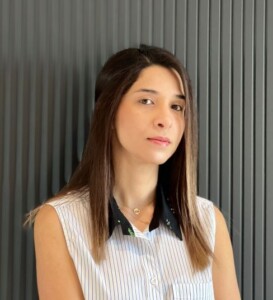
Samira holds a Master of Architecture from University of Toronto and a Master of Science from University of Michigan. She joined the design discipline after five years of medical studies in Iran. Prior to joining Harvard, Samira taught at University of Miami and practiced in Toronto. Her writings have appeared in Winterthur Portfolio (The University of Chicago Press), Thresholds Journal (MIT Press), Informa , Inflection Journal , and Centre , among others. She has exhibited her work at MIT (Keller Gallery), Fashion Art Toronto, University of Texas at Austin, and Azrieli School of Architecture and Urbanism at Carleton University.
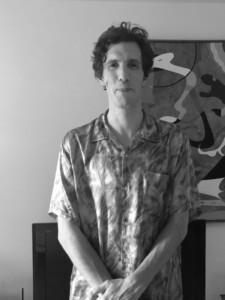
Romain holds a BA in cinema studies from Paris 3 Sorbonne Nouvelle and a BA and MA in architecture from l’Ecole Nationale Supérieure d’Architecture de Paris La Villette. In 2018, he received the Prix du Mémoire de Master en Architecture from the Fondation Rémy Butler. His research has been supported by the Canadian Center for Architecture in Montréal, the Harvard University Asia Center, the Weatherhead Center for International Affairs, and the Arthur Sachs Fellowship. In the Fall of 2024, as a Merit-Term Fellow, he will spend time in the Netherlands at the National Archives for his research.
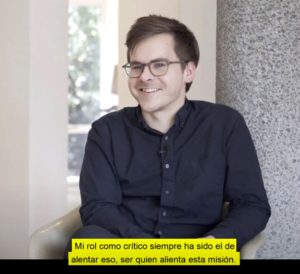
Phillip frequently writes about architecture, art, and design. His writing has appeared in Harvard Design Magazine, Volume, Metropolis, The New York Times, and other publications. Recent projects include a genealogy of “creaturely” architecture in Inscriptions: Architecture Before Speech, edited by K. Michael Hays and Andrew Holder (Harvard University Press), and The Art of Joining: Designing the Universal Connector (Leipzig: Spector Books), a pocketbook anthology of original research on the architect Konrad Wachsmann. He is a member of the editorial board of Architect’s Newspaper and editor of New York Review of Architecture. In 2020, Phillip co-founded a83 , a gallery and organization in Soho, New York, with a three-part mission to exhibit, publish, and promote experimental projects in architecture, art, and design.
Phillip completed his Master of Architecture degree at Princeton University, where he graduated with the certificate in Media + Modernity, and received the School of Architecture History and Theory Prize. He received a Master’s degree from Harvard University in 2019. He also holds a professional Bachelor of Architecture degree from Carnegie Mellon University, where he was awarded the Louis F Valentour Fellowship, the Pittsburgh History and Landmarks Foundation Prize for Architecture History, and the AIA Henry Adams Medal. He has practiced in numerous roles with architecture firms and organizations in the United States and Europe, including OMA/Rem Koolhaas, MOS Architects of New York, and C-Lab at Columbia University. In 2018, Phillip was a fellow of the Bauhaus Global Modernism Lab in Dessau, Germany. In 2019, he received a Graham Foundation grant to support his work on an English-language translation of Nicolas Schöffer’s 1969 urban manifesto La ville cybernétique.
[email protected] phillipdenny.com

Hayley’s current research examines developments in early modern theatre architecture and stage design, considering such topics and themes as the ways in which architecture and architectural thinking were transformed by the dramatic arts and became increasingly tied to other modes of rhetorical address practiced on stage; cultures of secrecy and rivalry characteristic of the profession of ‘scenic designer’ and among practitioners of esoteric theatre-technological knowledge; yet undecided relations between the role and reputation of stage managers called “il corago” or impresari and military commanders responsible for overseeing dynamic theatres of war; scenographic theory and its precarious relationship to practice; aesthetic and spatial programs for auditoria; and the pan-European legacy of architectural dynasties active in theatre and set design, including the families Galliari, Quaglio, and Galli da Bibiena.
Hayley’s interest in theatre architecture began following her visit to the Teatro Goldoni in Florence, Italy, in 2015. Equally inspired by the writings and life of the theatre’s namesake, that of the Venetian playwright Carlo Goldoni, Hayley was inspired to complete her master’s thesis at McGill University on the role and representation of a topic much debated in Goldoni’s creative work: Commedia dell’arte , being a form of Renaissance comic theatre with crude plots and characters like the gnocchi-loving scoundrel Punch ( Pulcinella ). While completing her degree, Hayley spent time as a Research Library Reader at the Getty Research Institute in Los Angeles, California, where she consulted copious visual materials from both the Italian Theatre Prints Collection and the Stage and Theatre Design Collection. Prior to matriculating to Harvard in 2020, Hayley completed a three-month research residency at the Fondazione Giorgio Cini’s Institute of Theatre and Opera in Venice, Italy.
For the 2023-24 academic year, Hayley will fulfill the role of MDes Research Tutor in the Narratives Program and will partake in a digital exhibition project with the Harvard Art Museums. The exhibition, which aims to shed light on the material culture of the Crusades, will feature over one-hundred individual objects from the Museums’ collections.
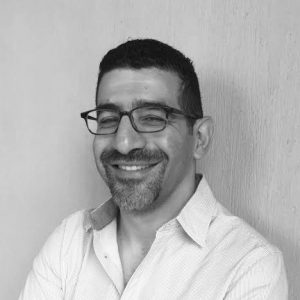
Tamer is an associate member of the Spatial Ethnography Lab, a research collaborative co-founded and led by anthropologist Vyjayanthi Rao. He is also a research member of Neil Brenner’s Urban Theory Lab at Harvard’s Graduate School of Design, in which he works on the spatial and political dimensions of extractive economies and large-scale water and energy infrastructure in the restructuring of North Africa. Tamer previously worked as a research assistant in the Zofnass Program for Sustainable Infrastructure, focusing on water and energy infrastructure in the US. Furthermore, reflecting his shared interests in critical geography and environmental anthropology, he was awarded the Penny White summer grant to conduct fieldwork in Egypt, investigating the infrastructural landscapes of coastal engineering works in the Nile Delta.
Tamer holds a Master in Design Studies in Urbanism, Landscape, Ecology from the Harvard Graduate School of Design (GSD), a Master of Landscape Architecture from FH Anhalt, Germany; a Post-professional Certificate in GIS and Environment from Salford University, UK; and a Bachelor of Architecture from Faculty of Fine Arts, Egypt. Tamer has previously worked as landscape architect in Germany and Egypt, and as an environmental researcher at the Center for the Documentation of Cultural and Natural Heritage, Bibliotheca Alexandrina.
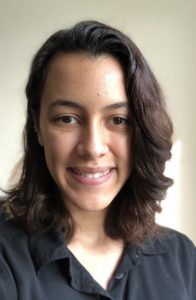
Morgan holds an MPhil in Architecture and Urban Studies with distinction from the University of Cambridge and a bachelor’s degree in International Politics and Security Studies from Georgetown University. Formerly a journalist and editor, her work has appeared in The Nation, the Los Angeles Review of Books, Mic, Popular Mechanics, Ploughshares, and Smart Cities Dive.
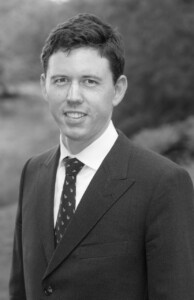
Charlie holds a Master in Design Studies from the Harvard Graduate School of Design and a B.A. in Art History and English from Williams College. Prior to earning his Masters degree, Charlie worked as a strategist at the New York design consultancy 2×4 before joining the GSD’s Office for Urbanization (OFU). There, he contributed to design research projects on mass transit, climate change adaptation, and new town planning. With Charles Waldheim and OFU, Charlie co-authored 50 Species-Towns , a 2022 publication that presents a speculative approach to rural urbanization in China. He also produces the GSD’s Future of the American City conversation series. Charlie lives in Somerville, MA with his wife Catherine and son Paul.

His recent publications include a paper (with Neil Brenner) on the relationship between processes of extended urbanization, neoliberal agro-industrial restructuring, and the political ecologies of emergent infectious disease; an essay on work and the labor process in the global construction industry; and a paper (with Ayan Meer) on the conceptual convergences between critical agrarian studies and urban theoretical scholarship on planetary urbanization. His broader interests include geographical political economy, political ecology, critical urban theory, state theory, and the historical geography of capitalism from the nineteenth century to the present.
Swarnabh is a Research Affiliate at the Urban Theory Lab, formerly based at the GSD, currently based in the Division of Social Sciences at the University of Chicago. His research has been supported by the Harvard GSAS Graduate Society, the Harvard Mellon Urban Initiative, the Weatherhead Center, and the IJURR Foundation. His work has appeared in Environment and Planning A: Economy and Space, Dialogues in Human Geography, Urban Studies, and The Avery Review, among other publications.
Swarnabh holds a Master of Philosophy in Urban Studies (with distinction) from the University of Cambridge where he studied as a Bass Scholar and a Master of Architecture from Yale University. Before coming to Harvard, he worked for several years at Diller Scofidio + Renfro in New York City where he was involved in projects spanning art, media, and architecture.
www.swarnabhghosh.com

Photo credit: Portrait by Enrique R. Aguilar for MENTES vol. 2, 2022.

Gabriel was Assistant Curator for the 17th International Architecture Exhibition – La Biennale di Venezia 2021. Past curated exhibitions include “Walls of Air” (the Brazilian Pavilion at the 2018 Venice Biennale) and “Housing+” (the 3rd Biennial Exhibit of the MIT L. Center for Advanced Urbanism). His recent books include: The World as an Architectural Project (MIT Press, 2020); 8 Reactions for Afterwards (RioBooks, 2019); and Walls of Air: Brazilian Pavilion 2018 (Bienal de São Paulo, 2018).
Graduated from the Master of Science in Urban Design program at MIT, Gabriel has held research positions at the School of Architecture and Planning, the Leventhal Center for Advanced Urbanism and the Senseable City Lab, and taught graduate-level seminars, workshops and studios at the same school.
For his PhD at Harvard, Gabriel is looking at the history of urbanization in the Amazon basin. His research interest suggests that the way politics and power got spatialized in that region has defined the framework through which we conceive of and relate to the Amazon, and that a new reading of it can, in turn, inform the way we understand and address broader urbanization processes as well as the responses from our design disciplines.
[email protected] gabrielkozlowski.com tomorrowanew.org
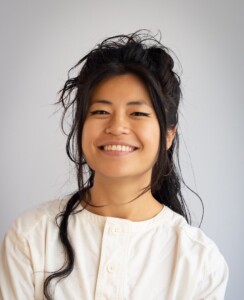
Anny has a background and strong interest in archives, knowledge infrastructures, and material history. Her professional experience includes work in special collections libraries, including Frances Loeb Library’s Special Collections and Houghton Library, where she supported their exhibitions, communications, and public programs. Prior to her graduate studies, she worked on communications and publications at Snøhetta, and has been a writer and editor at various architecture and landscape architecture firms for over 6 years. She has been an invited speaker in courses at the Syracuse University School of Architecture, Yale School of Architecture, Harvard GSD, the École Polytechnique Fédérale de Lausanne, and has edited and been published in publications including the New York Review of Architecture , Failed Architecture , POOL , Constructs , and volume 1 . She holds a B.A. in Comparative Literature from Brown University.
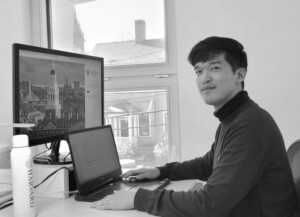
Sunghwan earned his Master in Design Studies (MDes) degree in Energy and Environment from Harvard Graduate School of Design in 2021. He received the Dean’s Merit Scholarship during his study and his master’s thesis, entitled Controlling Wind Pressure around Building by Multiangle Ventilation Louver for Higher Natural Ventilation Potential , was awarded to Daniel L. Schodek Award for Technology and Sustainability.
Before joining the Harvard community, Sunghwan double majored in Interior Architecture & Built Environment and Architecture & Architectural Engineering at Yonsei University in Seoul, Korea. After receiving his bachelor’s degree, Sunghwan worked as a construction engineer at Samsung Construction and Trading company for six years. His invaluable experiences with building an airport in Mongolia and constructing a residential complex in Seoul profoundly shaped his research ideas and motivated him to contribute to the field of architecture.
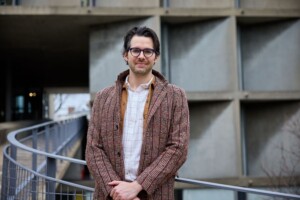
In his dissertation, Adam researches the mid-twentieth century entanglement of wartime policies, government agencies, private sector collaborations, and mass media technologies that led to the production of military “mock villages.” Constructed by the US Army Corps of Engineers in collaboration with architects, landscape architects, and Hollywood scenographers, mock villages were—and remain—elaborate stage sets where the US military rehearses combat operations before conducting them in actual theaters of war. His dissertation focuses on the Pacific Theater and especially the western United States where, in the 1940s, mock villages emerged as a key military technology in the war between the US and Japan. A goal of this research is to demonstrate how the invention of a novel form of architecture—the military mock village—coincided with the production of new forms of violence and destruction that persist today. In addition to the Safra Center, his project has been supported by the Weatherhead Center for International Affairs, the Kenneth C. Griffin Graduate School of Arts and Sciences, and the Graham Foundation.
Before coming to Harvard, Adam practiced for nearly a decade in several design offices including Olson Kundig Architects, Allied Works Architecture, and Snøhetta, where he was the director of post-occupancy research. His writing can be found in Thresholds , The Avery Review , and Log, among others.
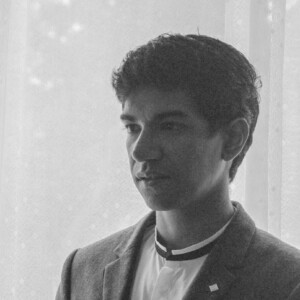
Sarah holds both a Master of Architecture and a Master of Science in Historic Preservation from the University of Pennsylvania School of Design, where the focus of her research was conflict between the collective desire to memorialize and the protective impulse to stigmatize, sanitize, or obliterate sites with traumatic or violent associations.
Prior to her enrollment at Harvard, Sarah was a public historian for the New York City Landmarks Preservation Commission where she wrote about lesser-known episodes in New York City’s past: female reformers’ creation of the first purpose-built kindergarten in Brooklyn, the adaptation of Civil War-era manufactories by Abstract Expressionist artists for use as studios, and Redemption-era racism through the lens of Tin Pan Alley’s 1890s-1910s popular music businesses.
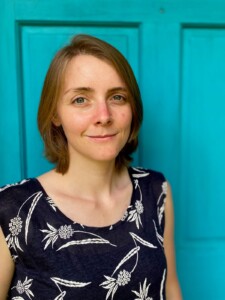
Before joining the PhD program, Miranda taught advanced studio courses as a Visiting Professor of Practice at Virginia Tech’s School of Architecture. At Virginia Tech she also developed a course on social mapping and GIS with a regional focus in Appalachia, which received support and recognition from other departments at the university and won the ACSA / Temple Hoyne Buell Center’s 2023 Course Development Prize in Architecture, Climate Change, and Society.
Before teaching, she worked as an architect at RODE Architects in Boston, MA on the largest supportive housing project north of New York City, as well as flood-resilient, Passive House, and community-oriented projects. She has also worked at firms in Boston and New York specializing in affordable housing, historic preservation, and adaptive reuse.
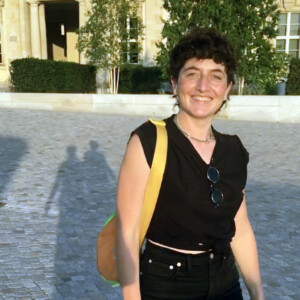
Caroline Filice Smith is doctoral candidate in Urban Planning and was the ‘22-‘23 Democracy Doctoral Fellow at the Ash Center for Democratic Governance at the Harvard Kennedy School. Their work focuses on racialized histories of urban design across the US and its empire, histories of activist planner-architects, and reparative and abolitionist models of urban design. Caroline’s dissertation project explores the emergence of “participatory planning” in the mid-twentieth century. Through a focus on federally funded—yet activist led—community action programs in the US, Caroline’s research examines how the Black Power movement, the War on Poverty, and models of community development originally designed to quell insurgency abroad, intersected to form the foundation of a now central paradigm of US urban planning practice. This work touches on issues of democratic social engineering, cold war imperialism, 20 th century anti-racist urban uprisings, and struggles for self-determination across the US.
In addition to their dissertation, Caroline teaches and conducts research as part of the Urban Design and the Color Line project and has recently completed an anti-racist planning toolkit with the Highline Network and the Urban Institute ( link ), and a report for the Architectural League of NY on landscape and community-led, post-coal futures for Appalachia. They are a Harvard Mellon Urban Initiative doctoral fellow, having previously served as an Irving Innovation Fellow, and their work has been funded by the Graham Foundation, the Knight Foundation, the Warren Center for American Studies, the Canadian Center for Architecture, and the Harvard Mellon Urban Initiative. Caroline holds a Master of Architecture in Urban Design with Distinction from the GSD, where they were awarded both the Thesis Prize and Academic Excellence Award in Urban Design – additionally, Caroline holds a Bachelor of Architecture from Virginia Tech. Prior to coming to Harvard, Caroline spent five years in professional architectural practice – most of which was spent working for UNStudio in their Shanghai office, and less of which was spent practicing in Los Angeles where they were actively involved in the Occupy movement.

MS Srinivas is a first-year PhD student in Architecture, Landscape Architecture, and Urban Planning. He is interested in histories of war, commemoration, and memory; the politics and architectures of the British Empire; and global and postcolonial approaches to architectural history. His earlier research has examined the transnational project of the Imperial War Graves Commission in the years after the First World War, and the emergence of the Delhi modern since the 1950s. The former project received a dissertation award from the Society of Architectural Historians of Great Britain (SAHGB).
MS trained as an architect at the School of Planning and Architecture, New Delhi, and acquired an MSc in Architectural History at the University of Edinburgh as a Hamish Ogston Foundation Commonwealth Scholar. He has previously worked on various architectural design and research projects in Delhi, notably as a museum consultant for the Archaeological Survey of India. He was also a part of the Review of Race and History at the University of Edinburgh, where he helped devise a policy framework to address issues of race and gender in the nineteenth-century bust collection of Playfair Library, a Grade-I listed heritage space.

Prior to doctoral studies, Sam worked in urban science-policy engagement for a Sustainability Research Network supported by the US National Science Foundation and as a research associate with the global cities research team at the Chicago Council on Global Affairs. Professionally, he has contributed to reports commissioned by UN Environment, the World Bank, and NATO. His scholarly work has been published in Global Environmental Change .
Sam holds master’s degrees in urban planning and Latin American studies from the University of Texas at Austin. He holds a bachelor’s degree in Latin American studies from Tulane University.

Ziwei holds a Master in Landscape Architecture, a Master in Design Studies in Urbanism, Landscape, Ecology from the Harvard Graduate School of Design (GSD), and a Bachelor of Architecture from Southeast University, China. She has also experience as an urban designer for one year for Stoss Landscape Urbanism, where she participated in projects in China, the U.S., and the United Arab Emirates.
You can learn more about Ziwei and her research here.

- Youth Program
- Wharton Online
Wharton Stories
7 resources to help phd students succeed on their doctoral journey.
It takes a village and a variety of skills to succeed in the doctoral world. Here are a few of the many resources Wharton Doctoral Programs offers to help.
Like most of our doctoral students, perhaps you’re preparing to go into academia after completing your PhD. Being a professor and researcher today often involves opportunities to share your research with a larger audience than a classroom of students. The doctoral journey is meant to prepare you with the wide array of skills you’ll need to be effective whether you’re in front of the classroom or a conference stage.
That includes the polish to present and speak publicly with ease, the writing and communication skills to craft your dissertation and journal articles, the analytical know-how to research thoroughly and gather meaningful data, and the ability to teach — colleagues, pupils, or the general public, whatever the case may be. And, if you have family, you’ll need support in getting them through this journey with you.
Wharton Doctoral Programs offers a wide range of resources to help you thrive in the PhD program and prepare you for life beyond it. Here are a few of the top Wharton resources our students have highlighted as most beneficial:
1. 5 Slides 5 Minutes
Researchers often have the opportunity to share their work with a larger audience through social media and mass media outlets — but it requires nuanced communication skills. How do you take complex findings and communicate them to a general audience concisely without oversimplifying the message?
That’s the focus of 5 Slides 5 Minutes. Launched in 2014, this low-stakes, high-potential event enables PhD students to present an abstract to students, faculty, and staff to practice engaging non-experts in their research topic. Students receive an invitation to participate via email from the Doctoral Programs Office.
After students present, they can work with Wharton Communications Program to review their presentation and get tips on how to improve their communication skills. Wharton’s renowned faculty also share valuable insights with students about these presentations.
“We focus on individuals. We help them convey their research content most effectively given their style and personality,” said Lisa Warshaw, Director of the Wharton Communications Program.
2. Dissertation Boot Camp
The name might sound intimidating, but some students think of Dissertation Boot Camp as a two-week writers’ retreat. Hosted twice a year by the Graduate Student Center, it’s designed for students who have dissertation status but haven’t presented their proposal yet.
The camp offers an environment and support for intense, focused writing time as well as a review on the steps, deadlines, and University policies. Limited to 20 students, the small group gives writers a chance to make connections with others who are going through the dissertation process and provides participants with the structure and motivation to overcome typical roadblocks along the way.
3. Wharton Communications Program
The Wharton Communication Program helps Wharton PhD students become more effective communicators and thus better presenters, public speakers, and writers — all critical skills in academia. All doctoral students are provided with access to on-site, one-on-one writing coaching during the academic year.
Wharton PhD students are required to attend two workshops: First-Year Communications Workshop in the fall and First-Year Writing Workshop in the spring. The skills-based approach adopted in the workshops helps students develop their personal style and strengthen their confidence as communicators.
Through multiple practice opportunities, video recording of speeches, and rigorous feedback, the program provides students with a thorough foundation in communication theory and for doctoral students, focuses on research presentations and job talks.
4. Teacher Development Program Workshop
Offered in conjunction with the Center for Teaching and Learning , the Teacher Development Program is a four-session course. It gives doctoral students a foundation in core teaching practices to support their teaching at Penn.
By helping with presentation skills and academic job placement, the workshop prepares students to become faculty in the future. Ian Petrie , Senior Associate Director, Center for Teaching and Learning described the workshop as “a collective, collaborative program.” Each week features “microteaching” demonstrations, where participants conduct a brief lesson and get feedback from their peers and the directors.
The intent is that faculty and graduate students will engage and learn from each other to master fundamental teaching methods. “Every PhD student can leave the program having gained some new tools for teaching,” Petrie said. This exchange happens when doctoral students observe “talented colleagues from other departments to get a glimpse of how they teach.”
Students also have the opportunity to enroll in the CTL Teaching Certificate program to hone teaching skills and grasp a commitment to developing as teachers.
“I’d like everyone to come out of the experience feeling more confident about their skills as an instructor or presenter,” Petrie said. “Anything I can do to support doctoral students in achieving their goals is extremely gratifying.”
5. Wharton Research Data Services (WRDS)
With more than 50,000 corporate, academic, and government users, Wharton Research Data Services (WRDS) is the global gold standard in data management, research analytics, and thought leadership. Researchers at more than 450 institutions in 36 countries across the globe depend upon this award-winning research platform and business intelligence tool — and researchers are doing the work to grow it right here on Wharton’s campus.
“The fact that the people who create the data, research analytics, and tools are here is super important,” said Prof. Cathy Schrand, Vice Dean of Wharton Doctoral Programs. “I’ve had early access to WRDS before it even became available to other subscribers. Top universities all over the world that have subscriptions to WRDS may only have access to certain elements of it, but we have access to all of it and it’s here on site which does provide an advantage.” The platform allows researchers to access more than 350 terabytes of data in one location that spans across multiple disciplines, including accounting, banking, economics, ESG (environmental, social, and governance), finance, health care, insurance, marketing, and statistics. “WRDS is by far the most important source of datasets for academic researchers. As a Wharton PhD student, you automatically get unrestricted access to every one of these databases,” said Itamar Drechsler, associate professor of finance at Wharton and NYU’s Stern School of Business, who has experience on both sides of the classroom – he earned his PhD from Wharton in 2009.
6. Wharton Behavioral Lab
A shared resource for all Wharton faculty, the Wharton Behavioral Laboratory (WBL) provides a variety of services that support data collection for behavioral research on business-related topics. The primary goal is to enhance the research productivity of Wharton faculty by minimizing the operational costs, both time and money, of conducting research. With two locations — one in Steinberg Hall Dietrich Hall and another in Jon Huntsman Hall, doctoral students can gather original data through lab experiments and panels, instead of using secondary data created by others. Each year, the lab collects about 23,000 subject hours of data. Research from WBL can consistently be found in national and international publications such as the Journal of Behavioral Decision Making, the Journal of Experimental Psychology: General, Proceedings of the National Academy of Sciences, the Journal of Neuroscience, Psychology, and Economics, and the Journal of Business Ethics .
7. Support for Families
For some PhD students, attending Wharton means relocating their families to a new city. To help students and their families ease the transition to PhD life, the Wharton Doctoral Program Office hosts the Maternity/Paternity Workshop , an annual event that talks about the resources available to PhD students with families.
Here are a couple of the key resources they highlight in the workshop:
- The Doctoral Programs Office allows eligible students to apply for up to one year of additional school-level funding beyond their allotted funded year. Furthermore, students are eligible for up to eight weeks of time-off for childbirth and adoption and have the option of taking unpaid Family Leave of Absence.
- At Penn, the Family Resource Center provides additional resources and facilities, such as a children’s playroom and two private lactation rooms, which cater to the needs of students with families. The Center also has two grant programs for PhD students to help offset the cost of childcare and family expenses, and health insurance for dependents.
- Wharton Doctoral Partners & Families is a student-run online resource created to communicate the resources at Penn and Philadelphia to partners and families. Its mission is to empower members to transition and settle into their new lives.
Posted: November 6, 2018
- Admissions and Applying
- The Wharton School
- Work/Life Balance
Doctoral Programs
Start your doctoral journey.
Whether you’re just starting your research on PhD programs or you’re ready to apply, we’ll walk you through the steps to take to become a successful PhD candidate.
Deciding to get a PhD
You might be surprised to find out what you can do with a PhD in business.
Is an Academic Career for You ? What Makes a Successful PhD Student
Preparing for the Doctoral Path
The skills, relationships, and knowledge you need to prepare yourself for a career in academics.
How the PhD Program Works How to Become a Successful PhD Applicant
Choosing the right program
What’s the difference between PhD programs? Find out how to choose one that fits your goals.
What to Consider When Choosing a Doctoral Program
Starting an application
Tips for a successful application process.
Application Requirements Preparing Your PhD Application
Related Content

How Wharton Is Impacting This Automotive Industry Executive’s Career

The Paradox of Giving to Charity

How Mentorship Enables the Transition from PhD Student to Research Colleague

7 Ways this Mother of Two Found Balance in Wharton’s EMBA Program

How Wharton Students Are Supporting COVID-19 Relief Efforts

New Doctoral Symposium to Increase Dialogue on Innovation Research

Why This PhD Student Says Wharton Makes It Easy to Be Successful

Faculty Expertise in Housing Economics Attracted This PhD Student to Wharton

5 Things I Learned While Helping Organize Wharton’s Africa Business Forum

Mission Impactful: Using a Legal Skillset to Research Impact Investing

2021 Year in Review: Dollars and Change Podcast

How Companies Engage with Social Activism

How This Alumna Is Using Her Wharton MBA to Drive Digital Brand Strategy at Nike

Improving Wellness at Wharton One Pitch at a Time

What Neuroscience Can Tell Us About Political Advertising
Thank you for visiting nature.com. You are using a browser version with limited support for CSS. To obtain the best experience, we recommend you use a more up to date browser (or turn off compatibility mode in Internet Explorer). In the meantime, to ensure continued support, we are displaying the site without styles and JavaScript.
- View all journals
- Explore content
- About the journal
- Publish with us
- Sign up for alerts
Career Guide 31 January 2020
Career resources for PhD students
The PhD is used to train most research scientists around the world and provides evidence of a gruelling period of independent study. But critics say many graduate student programmes have not adapted to accommodate changes in the workplace. Do PhDs need a rethink? This collection of articles and resources from across Nature Research looks at the PhD from a range of different perspectives.
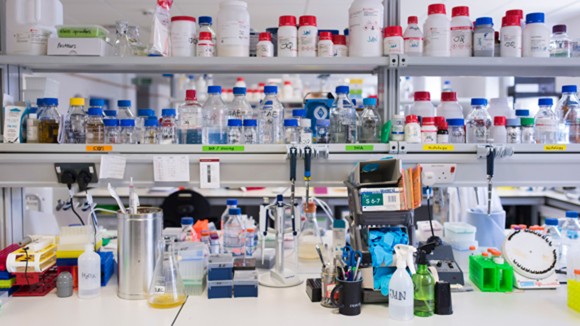
- Career Guide content
- Jobs and training
Graduate student survey 2022

Stress and uncertainty drag down graduate students’ satisfaction
Scholars in PhD and master’s programmes struggle with securing work–life balance and support around career training and mental health, finds Nature survey.
- Chris Woolston

‘Not even enough money for food’: graduate students face cash crunch
The cost-of-living crisis is causing widespread financial distress among those in master’s and PhD programmes worldwide.

The scandal of researchers paid less than a living wage
The cost-of-living crisis is a fundamental threat for PhD scholars and early-career researchers. They need to be paid properly.

‘I don’t want this kind of life’: graduate students question career options
As interest in academia fades, scholars in PhD and master’s programmes are dubious about the value of their degree in advancing their professional lives, finds Nature survey.

Obstacle race: the barriers facing graduates who study abroad
Visa woes and a lack of career prospects affect many international students, Nature ’s survey finds.

‘Intellectual challenge’: master’s students find reasons to be satisfied with their degree programmes
Graduate scholars are eager to launch their careers, eschewing the years of further study required for doctoral degrees.

‘Beyond anything I could have imagined’: graduate students speak out about racism
Bias and discrimination are rife in master’s and PhD programmes worldwide, a Nature survey finds.
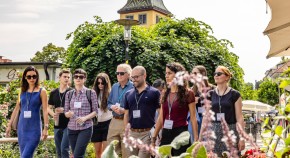
How to network with the brightest minds in science
Past attendees of the Lindau Nobel Laureate meeting describe how the event can benefit early career researchers.
- Lesley Evans Ogden

Hunger on campus: why US PhD students are fighting over food
Graduate students are relying on donated and discounted food in the struggle to make ends meet.
- Laurie Udesky

How we landed job interviews for professorships straight out of our PhD programmes
Follow these tips for an uber-organized (and successful) job hunt.
- Violeta Rodriguez

How two PhD students overcame the odds to snag tenure-track jobs
Between us, we got several offers to lead labs before we had finished our PhDs.

Three actions PhD-holders should take to land their next job
A hiring manager reveals the lessons he learnt when transitioning from a PhD programme to industry.
- Fawzi Abou-Chahine

Insights from four female scientists caught at the early-career crossroads
Facing challenges including parenthood, mental-health strain and financial pressures, these researchers give advice for navigating the uncertain paths before them.
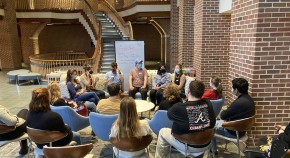
How a peer network made my worst day as a grad student bearable
Anxiety and depression affect nearly half of all early-career researchers. Strengthening our communities from within can provide relief, says Taylor Tibbs.
- Taylor Tibbs

How mixing academia and industry opens doors in graduate school and beyond
A growing number of PhD programmes and postdoc positions combine academic questions and industry resources.
- Freda Kreier

How to cold e-mail for a PhD
I learnt the benefits of reaching out through e-mail while I was a student, now I receive many cold e-mails myself. Here’s how to write a good one.
- Melissa Hart

New Year’s resolutions of a final-year PhD student
Andrew Wood plans for a career-defining 12 months ahead, and what he needs to focus on.
- Andrew Wood

How a pandemic PhD peer network group stood the test of time
As the first graduate student in a new lab, Jillian Collins came to rely on regular virtual meetings with peers from across the United States.
- Jillian Collins

Do two PhDs make twice the researcher?
Some scientists earn two PhD degrees to expand their skills, cross fields or create a niche research programme.
- Virginia Gewin

PhD students face cash crisis with wages that don’t cover living costs
As inflation rates soar, new data on the finances of US graduate students spark calls for action.
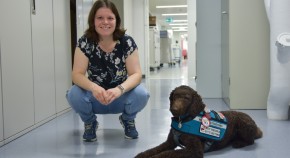
Starting a scientific career with narcolepsy
Ronja Weber describes living as a PhD student with narcolepsy, a chronic condition that disrupts sleep-wake processes.
- Ronja Weber
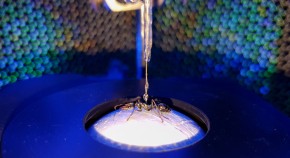
Why I got a PhD at age 61
A chance meeting at a scientific retreat took Zoltán Kócsi from the electronics industry to the entomology lab.
- Zoltán Kócsi

Owning, not doing: my transition from master’s to PhD student
Yuning Wang learned to rely less on her supervisor’s guidance during her doctoral programme, an important step on the road to research autonomy.
- Yuning Wang
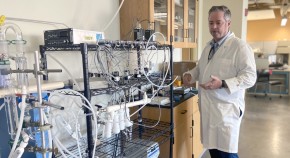
How I navigated my way through a midlife PhD
Roger Tipton was approaching 50 when he made a bold career move. Here’s what he learnt.
- Roger Tipton

‘Hard’ skills from our PhDs remain relevant beyond academia
Experience in grant-writing, data analysis and presentation will serve you well, say Samantha Baggott and Jonathan McGuire.
- Jonathan McGuire
- Samantha Baggott

Depression and anxiety ‘the norm’ for UK PhD students
A new survey underscores mental-health risks for doctoral researchers.

Managing up: how to communicate effectively with your PhD adviser
Your supervisor has a vested interest in your success. Set the right tone and communication style when you meet with them.
- Lluís Saló-Salgado
- Angi Acocella
- Augustine Zvinavashe

How I tackled post-PhD imposter syndrome
Kelsey Inouye’s job search gave her panic attacks and dented her self-esteem. But she learnt to take rejection in her stride.
- Kelsey Inouye

How to manage the uncertainty of a remote PhD
Satheesh Kumar has found ways to be productive without ever visiting his supervisor or lab.
- Satheesh Kumar

Take a walk: it’s the easiest way to step away from your graduate studies
Aine Lehane’s dog taught her the value of taking a break.
- Aine Lehane

The 100 memes that immortalize my PhD defence
Sophie Dufour-Beauséjour chose an unusual way to capture an academic rite of passage, with a little help from her friends.
- Sophie Dufour-Beauséjour
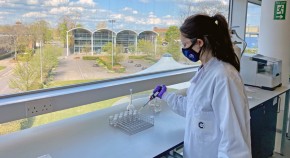
Six lessons from a pandemic PhD student
If you’re starting a doctoral programme later this year, particularly if your institution is still facing COVID-19 restrictions, Ciara O’Brien has some advice.
- Ciara O’Brien

You can help to create a new researcher-reward system
Universities, funders and others want to expand the contributions that the scientific community values and recognizes, says Karen Stroobants.
- Karen Stroobants

Sell yourself and your science in a compelling personal statement
Don’t get bogged down in technical details, and balance the professional and the personal.

Why you should consider becoming a doctoral representative
Join a group that represents PhD researchers to improve the working environment of your colleagues and to make friends.
- Michaela Löffler

My 2020 as an ‘alien’ PhD student in New York
Cecilia Zumajo-Cardona learnt three key lessons as an international graduate student in the United States, and is optimistic about 2021.
- Cecilia Zumajo-Cardona

Lifelong lessons from my unexpected encounter with a synchrotron
Biomedical scientist Vladimira Foteva didn’t imagine she would be working with physicists at an Australian particle accelerator when she began her PhD, but the experience taught her the value of collaboration across disciplines.
- Vladimira Foteva

My 11 part-time jobs made me a better PhD student
Waitressing, bartending and tutoring stole time from my academic studies, but I picked up transferable skills that still serve me well, says Cassie Sims.
- Cassie Sims

The lonely marathon run that transformed my approach to graduate school
When encouragement from friends, colleagues and family became harder to find, Taylor Engdahl learnt how to push herself.
- Taylor Engdahl

How I run a lab and work as a PhD student simultaneously
Oday Abushalbaq outlines his experience leading a team of neuroscience researchers from 9,000 kilometres away — while completing his PhD training.
- Oday Abushalbaq

Why comparing yourself to other graduate students is counter-productive
Julia Nolte realized that the only fair comparison to make during a PhD is with your past self.
- Julia Nolte

How managing a chronic illness gave me skills that would strengthen my PhD
A childhood diagnosis of type 1 diabetes taught Olivia Favor about the importance of meticulous record-keeping and other skills that proved useful in the lab.
- Olivia Favor
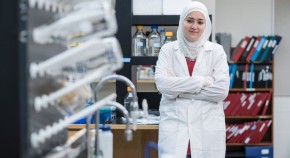
How science should support researchers with visual impairments
Naheda Sahtout says being legally blind doesn’t fundamentally affect her skills, and argues that science needs to start a conversation to attract and empower more researchers like her.
- Naheda Sahtout
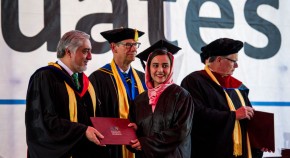
How to shake off the ‘impostor’ fears that plague your PhD studies
Three strategies for fighting those insidious feelings that you don’t deserve to be where you are.
- Maisie Keogh

Fifteen to one: how many applications it can take to land a single academic job offer
Survey finds that standard metrics of success can’t completely explain why some candidates get offers and others don’t.
- Nina Notman

Overcoming my writing guilt: writing in lockdown
How a PhD student found a way to be productive during lockdown after weeks of inactivity.

US government rescinds antagonistic international-student visa policy
Plan to force students to take in-person classes or face deportation is dropped during a federal hearing.

Bleak financial outlook for PhD students in Australia
Unable to afford medicines, utilities and housing, some students expect to suspend their doctoral programmes or drop out.

Coronavirus diaries: a lockdown letter to myself as a PhD student
A closed lab prompts John Tregoning to reflect on his early career, informed by his 12-year-old son’s response to COVID-19.
- John Tregoning
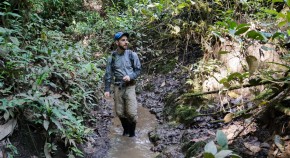
How lost lizards and Hurricane Irma are helping me get through coronavirus restrictions
When the coronavirus pandemic struck, field ecologist Nicholas Herrmann adopted a perspective inspired by experiences earlier in his PhD.
- Nicholas Herrmann

Design your own doctoral project
Instead of looking for PhD positions, designing your own project offers advantages and challenges, says Jesko Becker.
- Jesko Becker

Five ‘power skills’ for becoming a team leader
Volunteering with an organization can improve communication and help you adapt to the unexpected, say Sarah Groover and Ruth Gotian.
- Sarah Groover
- Ruth Gotian

Embracing challenge: combining marathon training with graduate studies
Preparing for three races in three years at university showed Kathryn Wierenga parallels between running and PhD work.
- Kathryn Wierenga
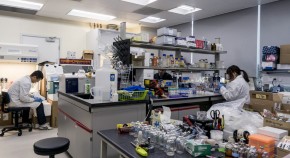
The PhD student’s dilemma
Navigating the turbulent waters of the doctoral voyage
- Sidique Gawusu
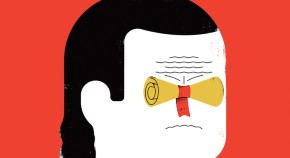
PhDs: the tortuous truth
Nature ’s survey of more than 6,000 graduate students reveals the turbulent nature of doctoral research.

A message for mentors from dissatisfied graduate students
In this second article to mark Nature ’s 2019 graduate survey, respondents call for more one-to-one support and better career guidance.

PhD students in China report misery and hope
Nature ’s biennial doctoral-student survey reveals struggles for work–life balance, career guidance and emotional support.
- Sarah O’Meara

The mental health of PhD researchers demands urgent attention
Anxiety and depression in graduate students is worsening. The health of the next generation of researchers needs systemic change to research cultures.
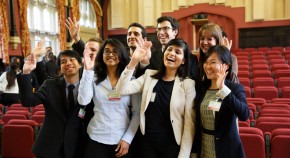
Founding a global biotechnology summit — while pursuing a PhD
Ipshita Mandal-Johnson teamed up with other graduate students to set up an annual forum to develop tomorrow’s biotechnology leaders. This is what she learnt.
- Ipshita Mandal-Johnson

Moving from prison to a PhD
Nature spoke to three US researchers who have built academic careers after they were released.

Don’t miss your PhD deadline
Top tips for avoiding last-minute disasters and filing your thesis on time.
- Nic Fleming

Working Scientist podcast: Start looking for jobs before you finish your PhD
Gaia Donati and Julie Gould discuss some of the career issues faced by physicists today.
- Julie Gould

Communicating science at a music festival — with 135,000 attendees
Helen Currie has shared her fish-migration research at several UK festivals, including Glastonbury.

Biking through my PhD
Overcoming my initial struggles after leaving China to start my PhD has been like riding a bike.
- Shuxuan Zheng

What I wish my friends and family knew about my PhD
Support must come from a place of understanding, says Kate Samardzic.
- Kate Samardzic

What not to do in graduate school
Six limiting maxims PhD students should avoid.
- Buddini Karawdeniya

My nine steps to success as a PhD student in Nigeria
Medical physicist Iyobosa Uwadiae ignored sceptics who questioned her plan to pursue a doctoral programme in the African nation. Here is her advice.
- Iyobosa Uwadiae

How I explained a gap in my CV when applying to graduate school
Circumstances outside my control contributed to a year of ‘F’s when I started at university, but by owning the experience and addressing it directly, I strengthened my application to do a PhD, says Jasper Elan Hunt.
- Jasper Elan Hunt

Five reasons to do an internship during your PhD programme
Rekindle your love for problem-solving by taking your lab skills to a completely different environment, says Jessica Sagers.
- Jessica Sagers

The career costs of COVID-19: how postdocs and PhD students are paying the price
Closed labs and rescinded job offers have snatched away opportunities. How can science bounce back? Julie Gould finds out.

Working Scientist podcast: How apartheid's legacy can still cast a shadow over doctoral education in South Africa
PhD programmes in "the rainbow nation" mostly lead to academic careers, but reform is needed to boost collaboration and integration, higher education experts tell Julie Gould.

Working Scientist podcast: The PhD thesis and how to boost its impact
The thesis is a central element of how graduate students are assessed. But is it time for an overhaul? Julie Gould finds out.

Working Scientist podcast: Team PhD
Scientific research is not the endeavour of a single person. It requires a team of people. How can this be better reflected in graduate student training, asks Julie Gould.

Working Scientist podcast: It's time to fix the "one size fits all" PhD
Julie Gould asks six higher education experts if it's now time to go back to the drawing board and redesign graduate programmes from scratch.

Working Scientist podcast: Too many PhDs, too few research positions
Students need to be clear about their reasons for pursuing a PhD and the career options open to them, Julie Gould discovers.
Quick links
- Explore articles by subject
- Guide to authors
- Editorial policies
Title of doctoral student changed to doctoral researcher
In future, the University will use the title ‘ doctoral researcher ’ in official contexts to refer to anyone pursuing a postgraduate degree. While the change has been recorded in the Regulations of the University, it does not affect related eligibility requirements or job descriptions.
The new title will be introduced for those who start their employment at the University to complete a doctoral degree as of 1 January 2022. Titles will not be changed in currently valid employment contracts, but doctoral researchers can independently switch to using the new title in relevant contexts as of the beginning of 2022. In the case of doctoral researchers employed by the University, the title change will be implemented in the SAP HR system and their personal profiles.
Those completing a doctoral degree with other funding can also switch to using the title of doctoral researcher. In Finnish, the title of ‘tohtorikoulutettava’ is replaced with ‘väitöskirjatutkija’. In Swedish, the title remains unchanged: ‘doktorand’.
Vice-Rector Paula Eerola commented on the change as follows: “We wish to express our appreciation of this large group of researchers at the University of Helsinki, and to emphasise through this title change that researchers are professionals at all stages of their careers. The title of doctoral researcher refers to both the content of their work and their career stage. The change is aimed at promoting the researcher identities and careers of anyone pursuing a doctoral degree. People completing a postgraduate degree have themselves wanted this change for a long time.”
A better match between the new title and the job description
A total of roughly 4,700 people are pursuing a doctoral degree at the University of Helsinki, of whom approximately 1,350 are employed by the University. Each year, the University awards around 500 doctoral degrees.
The decision to change the title was made because ‘doctoral researcher’ describes the principal duties associated with the position, that is, research, better than ‘doctoral student’. Doctoral researcher is also an appropriate title as it acknowledges the research conducted by doctoral researchers. Moreover, the title indicates the career stage of its holders. The goal is for the title to promote the future careers of doctoral graduates so that the time spent completing the doctoral thesis is taken into account when assessing experience of research work. The title change has been discussed, among other forums, by the steering group for doctoral education and the extended management group of the University as well as in cooperation meetings. For a long time, changing the title has been a topic of discussion in the academic community, both within the University and on the national level.
- UFR Droit Economie Management
- UFR Médecine
- UFR Pharmacie
- UFR Sciences
- UFR Sciences du Sport
- AgroParisTech
- CentraleSupélec
- ENS Paris-Saclay
- Institut d'Optique
- Polytech Université Paris-Saclay
- Accessibility
Your status as a PhD student
The phd student is a researcher in training. .
A doctoral training programme is a training-by-doing programme based on the doctoral research project, organised by a doctoral school, completed through a professional research experience within a recognised research group.
The doctoral thesis and original scientific work undertaken during the doctorate are defended by the doctoral candidates in an oral presentation . The PhD work takes the form of a dissertation, the thesis , of which the PhD student is the sole author and which is subject to a legal deposit .
The doctorate can be prepared as an initial educational programme, either full-time or as part of a vocational in-service programme. In any case, all scientific, material and financial conditions must be met to ensure the successful completion of the doctoral training project.
We recommend that you first read carefully the sections below, which specify generically the characteristics of doctoral education and what's expected from you. Also check carefully the web pages of the doctoral school that interrests you, to learn about the doctoral school own rules and expectations.
- An outstanding research experience
- An educationnal programm based on training-by-doing research
- Professional experience
- Academic excellence
- Skills development
- Documentation related to the admission process
Example of statuses
- Contracted doctoral candidates : The doctoral candidates have the status of a contractual public service agents for a contracted period of three years. They are a full-time employee with the only or main objective of completing the doctoral training project. They may also be entrusted with further responsibilities (teaching, scientific mediation, scientific transfer or expertise). Find out more...
- CIFRE (French Industrial Research Training Agreements) doctoral candidates: The doctoral candidates have the status of full-time company in-house employee for a three-year contract. Their only set objective is to successfully complete the doctoral training project, with alternating periods spent within the research unit of a higher education institution and within their company. Find out more...
- European Industrial Doctorate: similar to the CIFRE but within a European programme. Find out more...
- Doctoral candidates under a Research Training contract with an EPIC (French Industrial and Commercial Public Institution), with the CEA , the National Office for Aerospace Studies and Research ( ONERA ), for example. The doctoral candidates have the status of full-time employee for an EPIC for a period of three years, the sole objective of completing the doctoral training project.
Mary Smith – 2024 August Student Spotlight
Aug 7, 2024, 8:47 PM

Congratulations Mary!
Explore Story Topics
- Graduate School Blog
- Graduate Students
- Honors and Awards
- Student Profiles
- Liberty Online
- Residential
- Request More Information
- (434) 582-2000
- Academic Calendar
- Bachelor’s Degrees
- Master’s Degrees
- Postgraduate Degrees
- Doctoral Degrees
- Associate Degrees
- Certificate Programs
- Degree Minors
- Registrar’s Office
- Degree Completion Plans (DCPs)
- Course Catalog
- Policy Directory
- Academic Support (CASAS)
- LU Bookstore
- Research at Liberty
- Eagle Scholars Program
- Honors Scholars
- Quiz Bowl Team
- Debate Team
- Student Travel
- Liberty University Online Academy (K-12)
- Tuition & Costs
- Net Price Calculator
- Student Financial Services
- Scholarships
- Undergraduate
- International
- Apply for LU Online
- Online Admissions
- Online Tuition & Fees
- Military Students
- School of Law
- Osteopathic Medicine
- Convocation
- Campus Community
- LU Serve Now
- Liberty Worship Collective
- Office of Spiritual Development
- Online Engagement
- LU Shepherd
- Doctrinal Statement
- Mission Statement
- Residence Life
- Student Government
- Student Clubs
- Conduct Code & Appeals
- Health & Wellness
- Student Affairs Offices
- Campus Recreation
- LaHaye Rec & Fit
- Intramural Sports
- Hydaway Outdoor Center
- Snowflex Centre
- Student Activities
- Club Sports
- LaHaye Ice Center
- ID & Campus Services
- Dining Services
- Parents & Families
- Commuter Students
- International Students
- Graduate Students
- Disability Support
- NCAA Sports
- Flames Club
- Varsity Club
- Williams Stadium
- Vines Center
- Liberty Baseball Stadium
- Kamphuis Field
- Ticket Information
- Flames Merchandise
- LU Quick Facts
- News & Events
- Virtual Tour
- History of Liberty
- Contact Liberty
- Visit Liberty
- Give to Liberty
Graduate students tackle healthcare policy reform during new fellowship at Johns Hopkins
Search news archives, filter news articles.
Additional Navigation
August 5, 2024 : By Ryan Klinker - Office of Communications & Public Engagement

Three students from Liberty University’s Master of Public Health (MPH) program have spent nearly a year in an exciting new fellowship thanks to a partnership between the School of Health Sciences (SHS) and Johns Hopkins University School of Medicine.
The research fellowship at Hopkins, a collaboration between Dr. Heidi DiFrancesca, dean of Liberty’s School of Health Sciences , and Dr. Marty Makary, Professor of Surgery at Johns Hopkins, is designed for MPH students to conduct research on healthcare policy at the JHU School of Medicine and attend related events. The fellowship is one year long, beginning each August, and is under the direction of Makary and his research team, which includes Christi Walsh, M.S.N.-C.R.N.P., director of the Healthcare Graduate Research Program at Johns Hopkins. Makary, a pancreatic surgeon, is an outspoken proponent for healthcare reform and has given multiple Grand Rounds lectures on the topic at Liberty.
One of three students selected to particiate in the competitive fellowship, Andrea Mackenzie, saw the fellowship as a chance to fulfill her dreams of impacting the modern healthcare system in America.
“This couldn’t have been a more perfect opportunity,” said Mackenzie, who has been accepted to start her Ph.D. in Public Policy at Liberty. “It was through my (MPH) studies that I realized that one of the greatest effects we could have on the health of the nation would be in education and primary prevention, which seeks to avoids problems in the first place before they happen. It became clear to me that the policies, programs, and choices of our culture have a direct impact on health outcomes, and following a problem upstream to the source often leads to public policy opportunities.”
She joined fellow MPH students Faith Magwenzi and Asonganyi Aminkeng in the fellowship, working mainly in a remote setting, in addition to meeting together one or two times per month virtually and once a month in Washington, D.C.
“After hearing about the fellowship, I was immediately drawn to it due to the valuable skill sets that fellows would gain upon completion,” Aminkeng said. “I wanted to apply because I saw this as an excellent opportunity to enhance my knowledge and skills in public health, and it aligned perfectly with my career goals.

A core phase of the fellowship for each student was coming up with three scientific ideas presumed to be true, looking into the history of these “facts,” and determining their validity based on the researched evidence. The purpose of the exercise was to show how the practices and standards of medicine change over time, sometimes far later than they ought to, and that healthcare can and should make changes as new findings are discovered.
“We were challenged to think and question everything and research and really ask, ‘What do we know and what do we not know? What do we think we know that we get wrong?’” Mackenzie explained. “We looked back historically to see how these beliefs or conclusions came to be. We got to do a different type of research where it wasn’t just gathering publications from recent years; we were going back decades and, in some cases, centuries.”
One example that Mackenzie looked into was the history of ovarian cancer treatments that have existed since the 18th century. She read through old journals and accounts of surgeries that talked about how ovarian cancer was believed to originate in the ovaries, leading doctors to perform surgeries that remove ovaries, when recent findings point to fallopian tubes as the place where the cancer starts.
Magwenzi said this survey of scientific findings and beliefs over the centuries was a highlight for her as well.
“I have enjoyed the internship, particularly diving into literature and learning new things,” she said. “The fact that the internship challenged deeply held assumptions about health was eye-opening.”
Additionally, the students participated in three research projects, working collaboratively as each student took the lead on one of the projects. Aminkeng oversaw research on the prescribing of antibiotics in telemedicine and instances of improper dosage. Magwenzi led a project on the association between prescription rates and costs of weight-loss medications and obesity trends among Medicaid users in the United States. Mackenzie led a study on national physician cesarean section rates in low-risk deliveries.
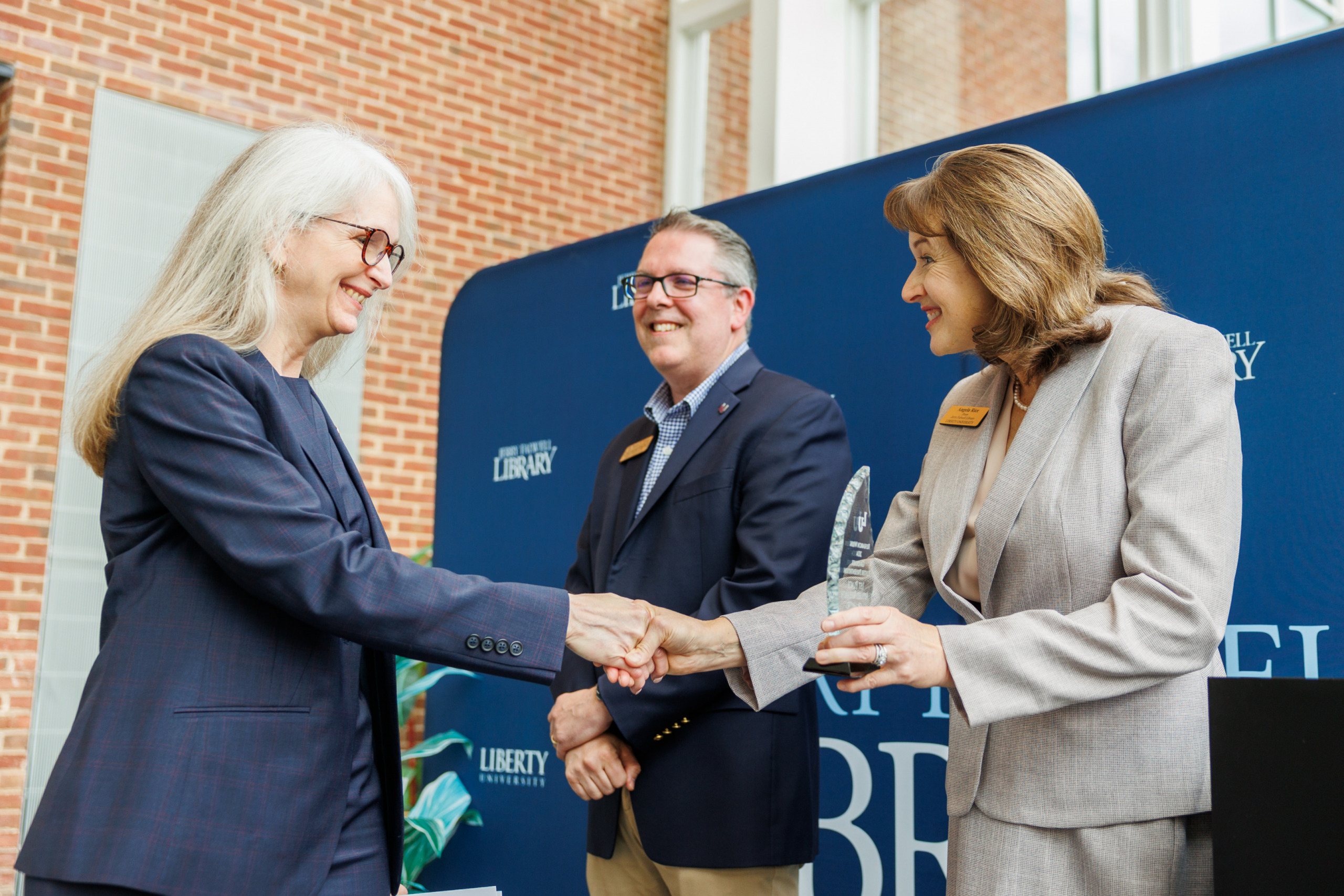
All three projects were presented at Liberty’s annual Research Week in April. Mackenzie’s C-section research won first place in the Graduate Applied Research Poster Presentation category. Her presentation was also selected by the National Delta Omega Public Health Honor Society to be presented at the American Public Health Association (APHA) national conference in October.
During the fellowship, the students traveled to conferences where they met with professionals who are impacting healthcare policy from different angles. On Capitol Hill, the students attended a conference hosted by the Paragon Health Institute, which provides healthcare research as well as market-based policy proposals for improved outcomes in the public and private sectors. They also met with members of Congress, including Kentucky Sen. Rand Paul, and sat in on hearings regarding healthcare reform. In Oklahoma City, the group attended the Free Market Medical Association’s 10th annual conference, where they met innovators who are finding alternative and efficient routes to provide patient care.
The fellowship also included lessons in searching for and writing grants, and students were able to shadow Makary in the operating room at Johns Hopkins Hospital.
“I have particularly enjoyed learning about grant writing, which is an essential skill for an aspiring public health expert like me,” Aminkeng said. “Additionally, I have developed a deeper understanding of health policy issues and health insurance challenges in the U.S. Understanding the intricate relationship between public health and the health systems in America has reinforced my commitment to making meaningful contributions to improve health outcomes both nationally and globally.”
Mackenzie said the experience of the fellowship was a “springboard” for her career: “This experience brought theory and hypothetical learning into practical reality. We met and made professional connections that are invaluable to my breadth of understanding and a future vision of hope for our healthcare system.”
“The internship awarded me a network of talented individuals and groups that I would otherwise not have access to who can be potential employers and partners in the future,” Magwenzi added. “I gained tons of research experience and as someone who wants to focus on research, the experience has been invaluable.”
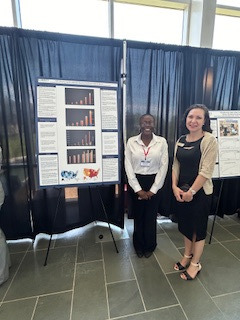
DiFrancesca is excited for all the ways the students have benefitted from the experience and how they can now share it with their classmates and the department.
“Through this research fellowship collaboration, we are making an investment in the next generation of public health leaders, underscoring the (School of Health Sciences’) commitment to ensuring our students are well-prepared to tackle the multifacteted challenges of the public health landscape. This enriching experience fosters students growth as burgeoning public health professionals and researchers, equipping them with the necessary skills, knowledge, and exposure to thrive as public health professionals capable of addressing complex health issues and contributing to evidence-based solutions.”
She also spoke about the benefits that this program brings with respect to both their academic journey and on their career trajectory.
“The comprehensive and immersive research fellowship provides a holistic learning experience through a combination of hands-on research, exposure to real-world policy and practice, interdisciplinary learning, and personal and professional development opportunities. This positions them well for successful careers in the dynamic field of public health.”
The first year of the original three-year partnership agreement is about to conclude — an agreement that includes a rigorous, competitive application process that begins with the department chair and other faculty identifying potential candidates and ends with candidates interviewing with Johns Hopkins staff.
“I am delighted to see the profoundly positive and dynamic outcome of our first year and look forward to more students having the opportunity to participate in this collaborative research fellowship in upcoming years.” DiFrancesca said.
Related Posts
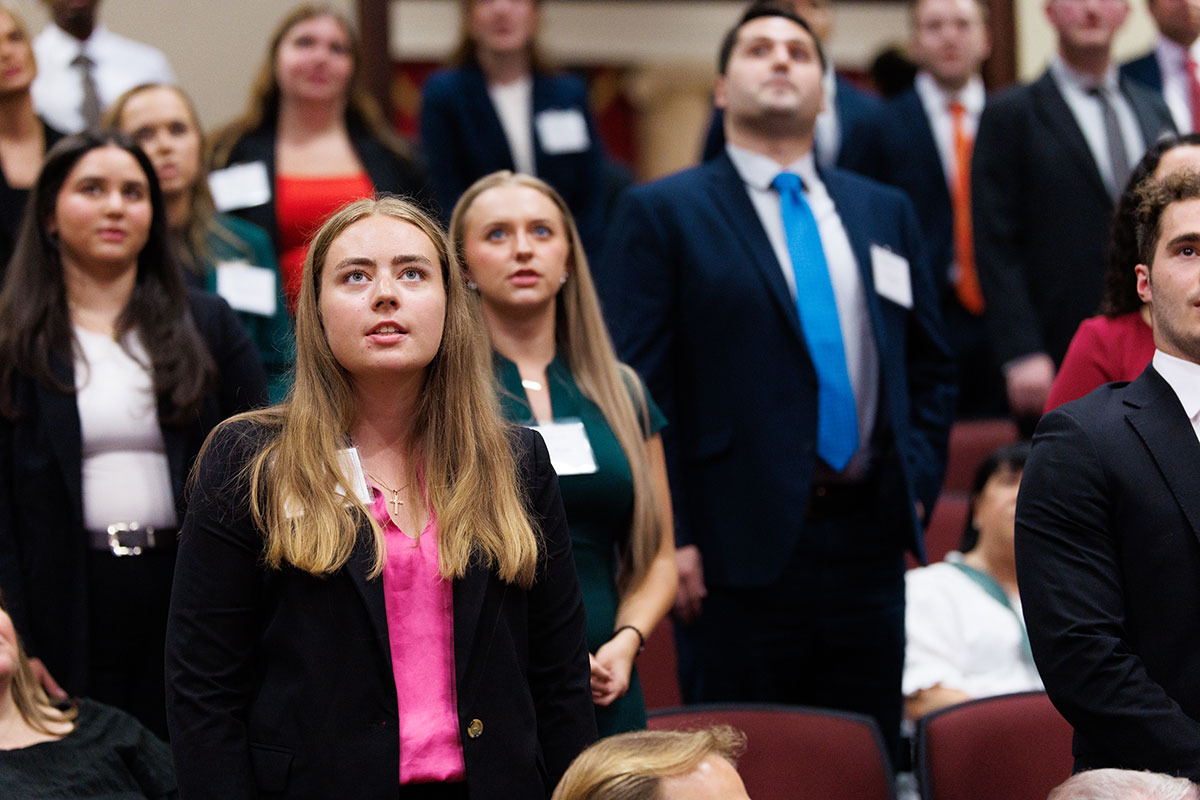
Incoming Liberty Law students pledge duty to legal profession during special ceremony
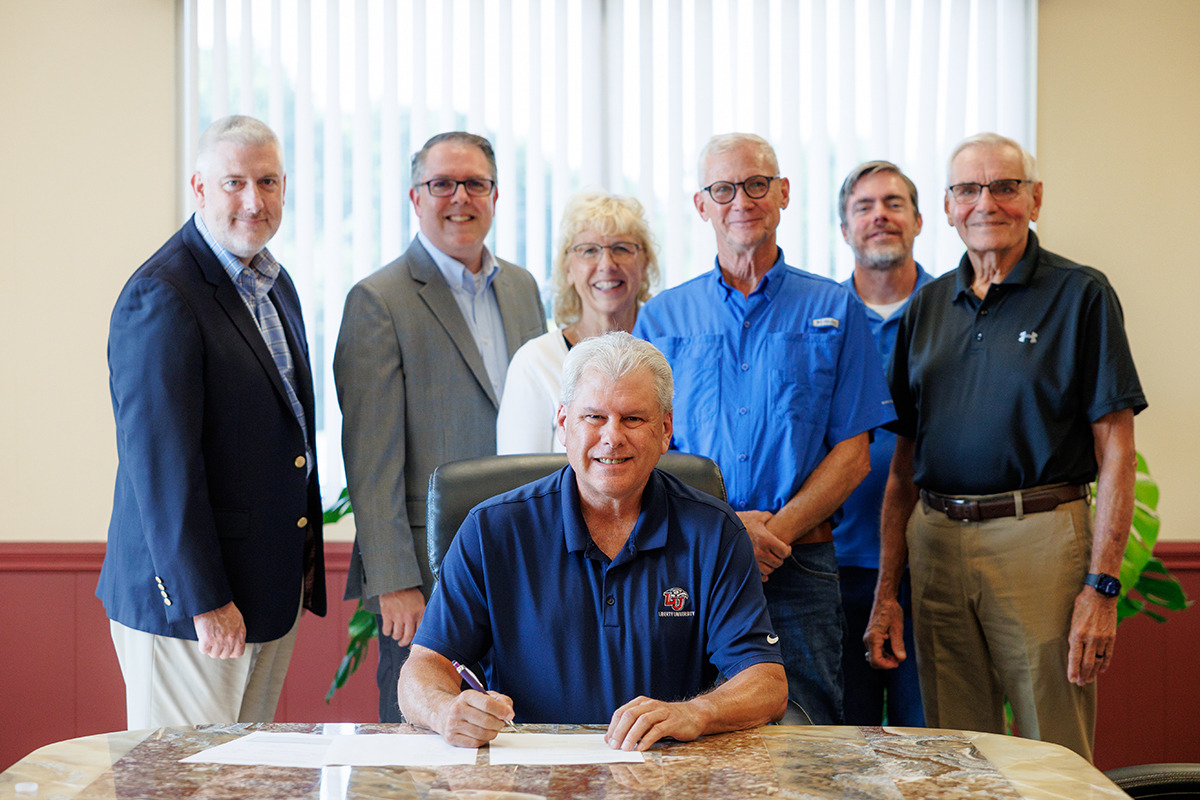
Liberty University acquires Virginia Technical Institute, expands trade training

Upcoming Liberty theatre season to bring love, laughs to audiences
- Find your Librarian Connect with a librarian with expertise in your research subject area
- Toolkits Curated information resources grouped by discipline
- Research Guides Librarian-recommended resources, research tips, and how-to guides
- Faculty & Staff Guide Quick links for faculty and staff
- UW Libraries Search All articles, books, and other resources available within the UW Libraries
- Books Health sciences electronic books, sortable alphabetically or by subject
- Databases Indexed collections of full-text articles, citations and other research materials
- Journals Searchable list of health sciences journal titles held at UW
- Videos Educational and procedural videos, sorted by subject
- Request Library Resources Request or reserve library materials needed for classes
- Your Library Account Portal for renewing borrowed materials, viewing item request updates, and paying fines
- Course Reserves Library materials reserved for your classes
- Interlibrary Loan Receive scanned print articles delivered via email and borrow items not held at UW
- Off-Campus Access Instruction for connecting to UW Libraries resources while away from campus
- Study Rooms Reservable rooms for individual and small-group studying
- Li Lu Library Open library space located in the UW Health Sciences Education Building
- Meeting and Event Spaces Larger spaces available for fee-based reservations
- Learning Commons Lab Testing facility with drop-in computer access (closed Apr-Dec 2024)
- Accessibility at HSL We are committed to providing equal access to library collections, services, and facilities for all library users
- Collection Guidelines Guidelines for resource purchases by HSL
- FAQ Commonly asked questions from HSL users
- News & Events Announcements, upcoming events, and new resources
- Staff Directory Current HSL, NNLM Region 5, and HEALWA staff
- UW Libraries Policies Policies governing use of library resources, space, and services
Graduate Student Research Institute
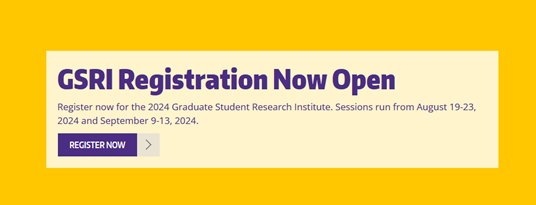
Register now for the 2024 Graduate Student Research Institute. Sessions run from August 19-23, 2024 and September 9-13, 2024.
GSRI is a free online workshop and will take place asynchronously over a 5 day period.
Each day will consist of:
- An introduction to a new research topic and skill.
- A tour of specific resources to help you get started.
- A choice of activities to practice skills and become familiar with resources.
- An opportunity for discussion to help you engage with the material and your peers.
For more information and to register for these sessions, please visit UW's Graduate Student Research Institute page.

PhD Student vs Graduate Student [Correct terminologies]
As you progress down the academic pathway it can become confusing to work out what the appropriate terminology is for your current level of education. Is it PhD student? Is it graduate student? Is the PhD student the same as a graduate? Well, this article will answer all your questions.
Graduate student is an umbrella term for someone with an undergraduate qualification (bachelors, diploma), they are often performing graduate research in a Masters or PhD program. All PhD students are graduate students but not all graduate students are PhD students.
To fully get our heads around each of these definitions, we need to understand exactly what each term really means.
This is where we can look at the actual definitions of PhD student vs graduate student.

Definition of PhD student
A PhD student is someone who is currently enrolled in a doctorate degree program and is in the early stages of their course.
Some institutions require students to undergo a coursework component of their graduate program and are called a PhD student .
After the completion of the coursework component, with the research component still to go, they can be called a PhD candidate .
Definition of Graduate student
A graduate student is a known for a student who continues their studies after completion of their undergraduate degree.
The Cambridge dictionary defines it as:
A student who is studying for a degree that is higher than the one received after four years of study at a college or university.
Who is considered a graduate student?
Graduate students can include:
- Masters students
- PhD students
- Professional Masters
- Graduate academic certificate programs
- undergraduate/graduate hybrid degree programs
Even if you have got an undergraduate degree, there are many more options for you to obtain many more qualifications and build on your education. In these instances, you will be known as a graduate student.
Is a PhD student a graduate student?
Yes, a PhD student is a graduate student.
They have spent up to 4 years in their undergraduate programs in order to qualify for admission into a PhD program.
PhD students are able to call themselves graduate students but many choose to refer to themselves as PhD students or candidates.
Is PhD the same as graduate?
A PhD is the highest education attainable as a graduate.
In order to obtain a PhD one must graduate from an undergraduate degree. From the moment of graduating in their undergraduate degree they are known as a graduate.
The order of becoming a PhD from a graduate is shown in the table below. It also includes what happens after you get a PhD.
| Stage of education | Important notes |
|---|---|
| Obtaining a bachelor degree | someone undergoing their undergraduate degree, referred to as an undergraduate. |
| Obtaining a Masters degree | referred to as a graduate student or a Masters student. |
| Becoming a PhD student | a PhD student is someone who is in the early stage of their degree and has two complete the coursework (common in the USA). |
| Becoming a PhD candidate | a PhD candidate is someone who has completed the coursework component of their degree and has to perform research and submit their thesis. |
| Becoming a PhD graduate | |
| Becoming a post-doc | After your PhD degree you can choose to enter the University as a postdoctoral researcher. |
| Becoming a lecturer | The first level of employment for a university tenure position is as a lecturer or reader at a university. |
| Becoming an associate professor | The next level of promotion is to an associate professor level. |
| Becoming a professor | A tenured professor has shown excellence in teaching, research, and administrative duties to the University. |
Is a doctoral student the same as a PhD student?
Strictly speaking, a PhD student is someone who is pursuing a doctor of philosophy.
A PhD student is a type of doctoral student but not all doctoral students are PhD students. Anyone aiming to achieve the title of ‘Dr’ is a doctoral student.
There are many other different types of doctoral students including:
- Doctor of Arts (DA)
- Doctor of Business Administration (DBA)
- Doctor of Design (DDes)
- Doctor of Engineering or Engineering Science (DEng, DESc, DES)
- Doctor of Education (EdD)
- Doctor of Fine Arts (DFA.)
- Doctor of Juridical Science (JSD, SJD)
- Doctor of Musical Arts (DMA)
- Doctor of Music Education (DME)
- Doctor of Modern Languages (DML)
- Doctor of Nursing Science (DNSc)
- Doctor of Philosophy (PhD)
- Doctor of Public Health (DPH)
- Doctor of Sacred Theology (STD)
- Doctor of Science (DSc, ScD)
- Doctor of Theology (ThD)
There are also professional degrees that lead to the person being called Doctor. These professional degrees result in honorific doctor titles, including those found in the table below.
| Medical doctors | Pharmacists | Dentists |
| Veterinary surgeons | Lawyers (Doctor of Juris) | Podiatrists |
| Naturopath’s | Chiropractors |
In my 15 years in academia, I would only really refer to someone as a PhD student. However, if someone was to introduce themselves as a doctoral student I would understand them to be a PhD student.
Wrapping up
In this article, we have learned the difference between PhD student vs graduate student.
In summary, a graduate student is an umbrella term that includes anyone that has done an undergraduate qualification and is continuing their education. It includes Masters students, PhD students and others.
All PhD students are graduate students but not all graduate students are PhD students.

Dr Andrew Stapleton has a Masters and PhD in Chemistry from the UK and Australia. He has many years of research experience and has worked as a Postdoctoral Fellow and Associate at a number of Universities. Although having secured funding for his own research, he left academia to help others with his YouTube channel all about the inner workings of academia and how to make it work for you.
Thank you for visiting Academia Insider.
We are here to help you navigate Academia as painlessly as possible. We are supported by our readers and by visiting you are helping us earn a small amount through ads and affiliate revenue - Thank you!

2024 © Academia Insider


Howard University's News & Stories Hub
Howard university medical physics program receives accreditation, celebrates first graduate.
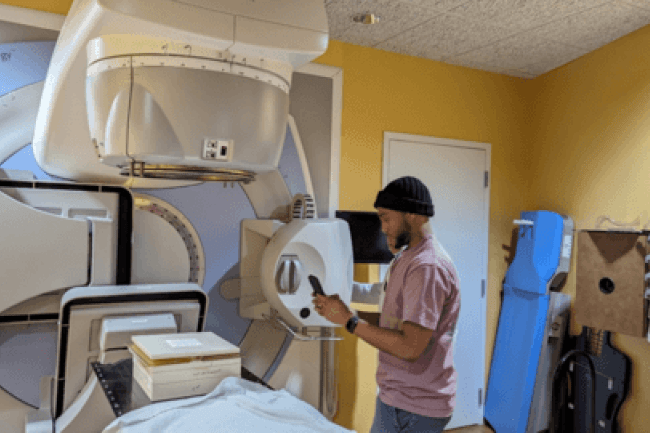
The Howard University Graduate School is thrilled to announce that the Master of Science in Medical Physics program has officially received accreditation from the Commission on Accreditation of Medical Physics Education Programs (CAMPEP) . This prestigious accreditation recognizes the program’s quality and rigor, affirming the commitment to excellence in education and training in medical physics. The medical physics program at Howard is the only program held at an HBCU.
Through targeted training, professional development initiatives, and academic courses, the medical physics program, initiated in Fall 2021, aims to equip Black Americans and underrepresented populations with new skills, knowledge, and pathways to ascend the socioeconomic ladder through education and career growth.
The Medical physics field involves applying the principles of physics to medicine, by operating at the intersection of academia and clinical sciences. Medical physicists possess a comprehensive understanding of the physical principles underlying medical devices. Their education and training equip them to troubleshoot and provide expertise, ensuring the safe and effective utilization of advanced medical technologies, thereby contributing to improved patient care. It plays a crucial role in the development and implementation of medical technologies, particularly in areas such as diagnostic imaging, radiological medicine, nuclear medicine, and health and radiation physics.
“This milestone is a testament to the hard work, dedication, and excellence of our faculty, students, and staff. It underscores our commitment to providing top-tier education and training in medical physics and enhances our ability to prepare the next generation of professionals who will make impactful contributions to the field. We look forward to continuing to grow and advance the quality of our program and support the growth of our students,” said Britnee Marius , medical physics program coordinator.”
This past summer, Aaron Conard became the first student to graduate from the new medical physics program. He will begin a residency at the renowned Johns Hopkins Sibley Memorial Hospital, where he will continue to advance his expertise and contribute to the field of clinical medical physics.
“I can confidently say that the preparation I received from Howard's Medical Physics program has been instrumental in my success,” said Conard. “The rigorous coursework, hands-on clinical observations, and invaluable academic and career advising provided by the faculty and staff have established a solid foundation for my career. This comprehensive preparation has made my transition into the residency program smooth and has significantly boosted my confidence and competence in the field.”
Keep Reading
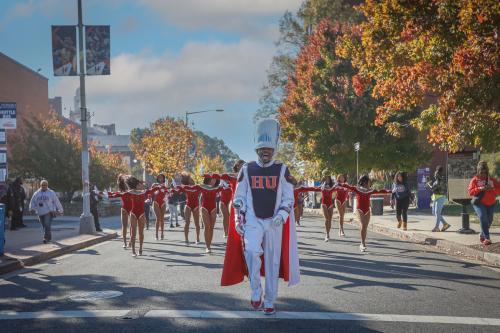
Howard University Celebrates 100th Homecoming October 13-20
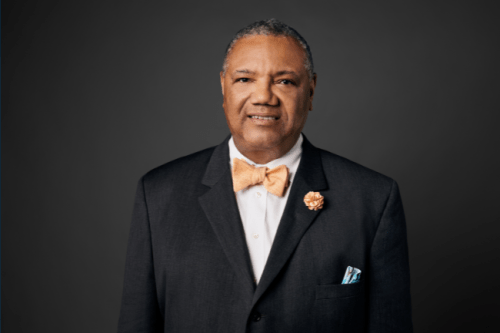
Howard University Alumnus D. Orlando Ledbetter to Receive Highest Honor from the Pro Football Writers of America
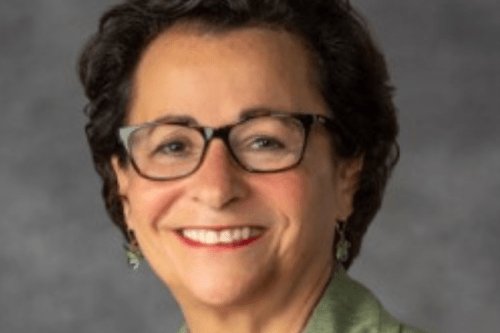
Howard University Names Karol Kain Gray as Interim Chief Financial Officer
Find more stories like this, are you a member of the media.
Our public relations team can connect you with faculty experts and answer questions about Howard University news and events.

IMAGES
VIDEO
COMMENTS
A PhD student is a student pursuing a doctoral degree, while a PhD researcher can be anyone who is conducting research at the doctoral level, including PhD students, postdocs, and faculty members. However, in practice, the terms PhD student and PhD researcher are often used interchangeably. The confusion comes from the fact that a PhD research ...
1. PhD students and PhD researchers are not the same thing. A "PhD researcher" is a researcher who has a PhD, while a PhD student is working on a project in order to obtain a PhD (i.e. does not have the degree yet). I agree with you, that the term "PhD student" in English is rather unfortunate - in reality, it is much closer to an ...
In Australia, "PhD candidate" is the preferred term for those who have completed the required coursework and have advanced to the research phase. In contrast, in the United States, "PhD student" is frequently used to refer to individuals at all stages of their doctoral studies.
The PhD, also known as the Doctor of Philosophy, is a research degree, which is one of the most common types of doctoral degrees, and is awarded to graduates in many different fields. For those asking, "Is a PhD higher than a doctorate?" the answer is simple: no. A PhD lies within the doctorate category, so one is not better than the other.
To become a PhD candidate, doctoral students need to pass an internal application process, typically involving a set of exams. ... Research Progress. A PhD student may not have selected their research topic or settled on a particular research question. A candidate's research is in progress and they should already have a clear research question.
Additionally, prospective doctorate students may be asked to provide evidence of work experience, while PhD students might demonstrate their research abilities with a writing sample. Program Length Requirements vary by program, but full-time students typically complete a doctorate in 3 to 5 years.
Definition of a PhD - A Doctor of Philosophy (commonly abbreviated to PhD, Ph.D or a DPhil) is a university research degree awarded from across a broad range of academic disciplines; in most countries, it is a terminal degree, i.e. the highest academic degree possible. PhDs differ from undergraduate and master's degrees in that PhDs are ...
The terms "PhD" and "doctorate" are often used interchangeably, though a PhD is a specific type of doctorate focused on original research. A doctorate can refer more broadly to any doctoral-level degree, including professional doctorates with practical applications.
A PhD student is in the initial stages of their doctoral journey, undertaking coursework and preparing for exams. A PhD candidate, having passed these exams, focuses on original research and writing a dissertation. The difference between a PhD candidate and a PhD student becomes more evident at this stage.
As a doctoral student, you will spend the first two years of your program exploring areas of interest through coursework. In the two to three years that follow, you will select and pursue your own research topic, one which will make an original contribution to the existing body of knowledge in your field.
Ph.D student or graduate student is the normal title. If you have completed your qualifying exams then Ph.D candidate is acceptable. PhD student before comps -> PhD candidate after comps just keep it simple. On cv you can put graduate research assistant as the "job title". Doctoral Scholar is another.
Whilst there are plenty of resources available to help prospective PhD students find doctoral programmes, deciding on a research topic is a process students often find more difficult. ... Another tip is to talk to a PhD student or researcher who is involved in a similar research project. Alternatively, you can usually find a relevant research ...
A PhD student was anyone enrolled in the doctoral program, but you were only admitted to PhD candidacy after a couple of years of coursework and a qualifying exam. ... Additionally, PhD students doing only research, as opposed to having some teaching duties attached to their contract or funding, are often times referred to as lucky. I use the ...
7 stages of the PhD journey. A PhD has a few landmark milestones along the way. The three to four year you'll spend doing a PhD can be divided into these seven stages. Preparing a research proposal. Carrying out a literature review. Conducting research and collecting results. Completing the MPhil to PhD upgrade.
A PhD Candidate is an individual who is currently enrolled in a doctoral program at a university or other tertiary education institution. They are usually referred to as " PhD students" or "PhD candidates.". In order to qualify for the PhD, a candidate must complete all of the program's coursework requirements and write and defend a ...
William has a BA from Northwestern University, an MPhil from the University of Oxford, and an AM from Harvard University. He is a Research Affiliate at the University of Chicago's Urban Theory Lab. is a PhD Candidate in History and Theory of Architecture, Landscape Architecture, and Urban Planning and a Master of Arts student in History of ...
People who earn a PhD often pursue careers in research, academia, and leadership. A PhD is also called an academic doctoral degree or a terminal degree. What Is a Dissertation in a PhD Program? A dissertation is a research project that addresses a gap in literature and adds new knowledge to a field through original research.
Don't see your PhD as just a road map laid out by your supervisor. Develop good writing skills: they will make your scientific career immeasurably easier. To be successful you must be at least ...
3. Wharton Communications Program. The Wharton Communication Program helps Wharton PhD students become more effective communicators and thus better presenters, public speakers, and writers — all critical skills in academia. All doctoral students are provided with access to on-site, one-on-one writing coaching during the academic year.
The PhD is used to train most research scientists around the world and provides evidence of a gruelling period of independent study. But critics say many graduate student programmes have not ...
The Board of the University of Helsinki has decided to change the title of doctoral student to doctoral researcher. In future, the University will use the title ' doctoral researcher ' in official contexts to refer to anyone pursuing a postgraduate degree. While the change has been recorded in the Regulations of the University, it does not ...
The PhD student is a researcher in training. A doctoral training programme is a training-by-doing programme based on the doctoral research project, organised by a doctoral school, completed through a professional research experience within a recognised research group. The doctoral thesis and original scientific work undertaken during the doctorate are defended by the doctoral candidates in an ...
Ali Ubeyitogullari, assistant professor of food engineering, was part of a group attending the Institute of Food Technologists FIRST Event and Expo in Chicago in July, and two of his graduate students placed second in presentation contests. Food science doctoral students Arda Tuhanioglu and Sumanjot ...
All graduate students are invited to attend one of two seminars hosted by the University Libraries as part of the Razorback Researcher Seminar Series. The first seminar, Overview of Research Information for Graduate Students, will be offered via Microsoft Teams and presented by Luti Salisbury, distinguished professor and librarian.
University of Alabama at Birmingham Photo credit: Tate Lasher Department of Biology Ph.D. student Tate Lasher was recently awarded the Diana Jacobs Kalman/American Federation for Aging Research Scholarship for Research in the Biology of Aging.. Lasher, 26, an Atlanta, Georgia, native, will receive $5,000 in academic funding to conduct a three- to six-month research project focused on ...
Mary is a PhD candidate in the Department of Leadership, Policy, and Organizations at Peabody College. Her research focuses on how policies, programs, and organizations can better support students as they transition to postsecondary education and the workforce. She has been awarded an AERA-NSF Dissertation Grant for the 2024-25 academic year to support her dissertation […]
Academics & Degrees mega_dropdown_icon. Liberty University offers undergraduate and graduate degrees through residential and online programs. Choose from more than 700 programs of study.
Graduate Student Research Institute. Posted on August 5, 2024 August 5, 2024. Register now for the 2024 Graduate Student Research Institute. Sessions run from August 19-23, 2024 and September 9-13, 2024. GSRI is a free online workshop and will take place asynchronously over a 5 day period.
Graduate student is an umbrella term for someone with an undergraduate qualification (bachelors, diploma), they are often performing graduate research in a Masters or PhD program. All PhD students are graduate students but not all graduate students are PhD students. To fully get our heads around each of these definitions, we need to understand ...
The Howard University Graduate School is thrilled to announce that the Master of Science in Medical Physics program has officially received accreditation from the Commission on Accreditation of Medical Physics Education Programs (CAMPEP).This prestigious accreditation recognizes the program's quality and rigor, affirming the commitment to excellence in education and training in medical physics.